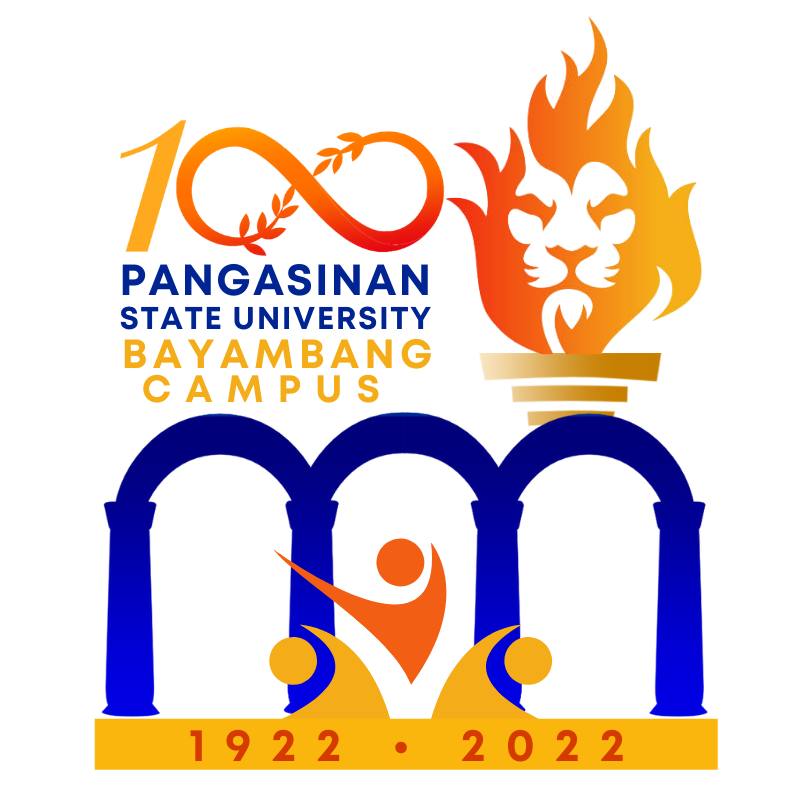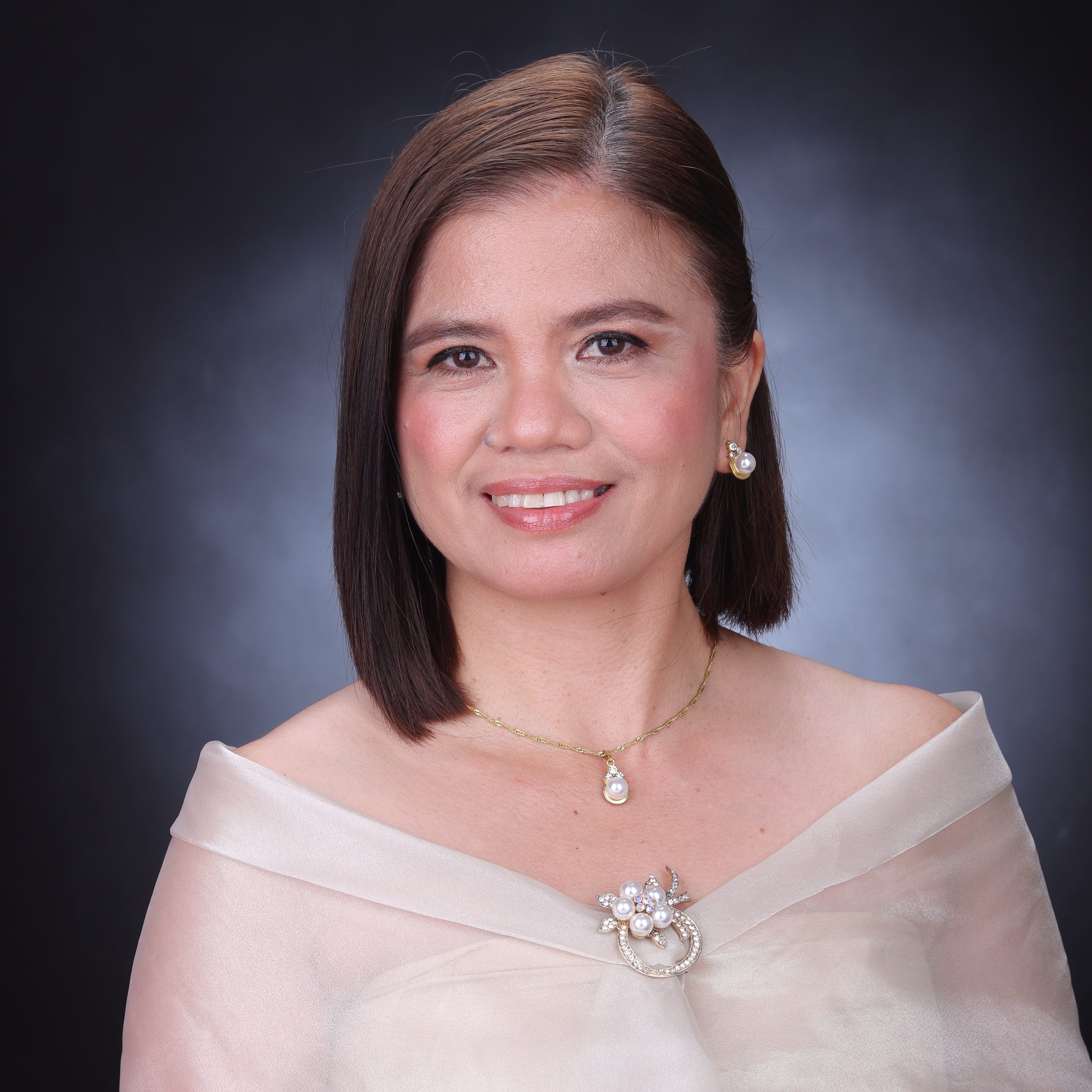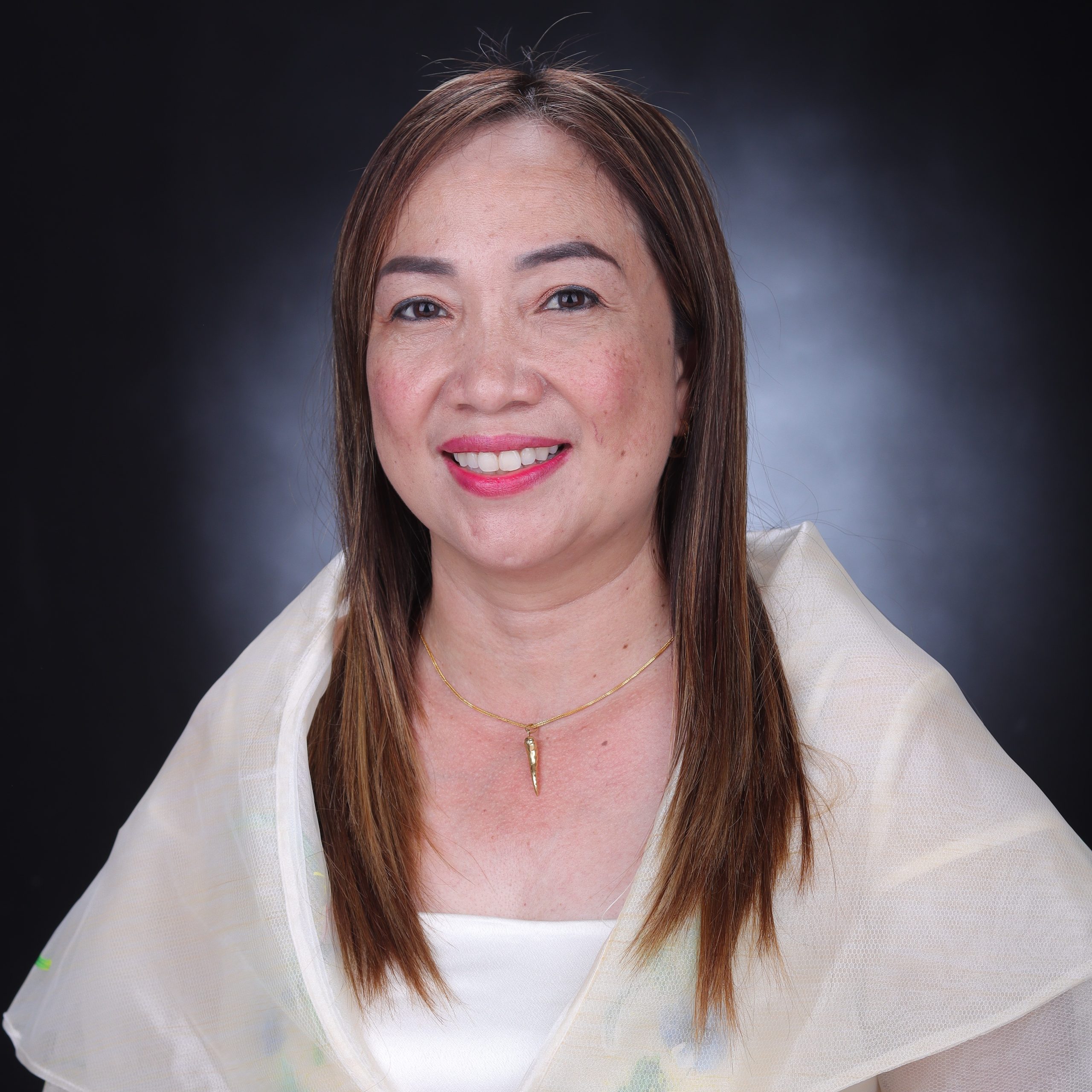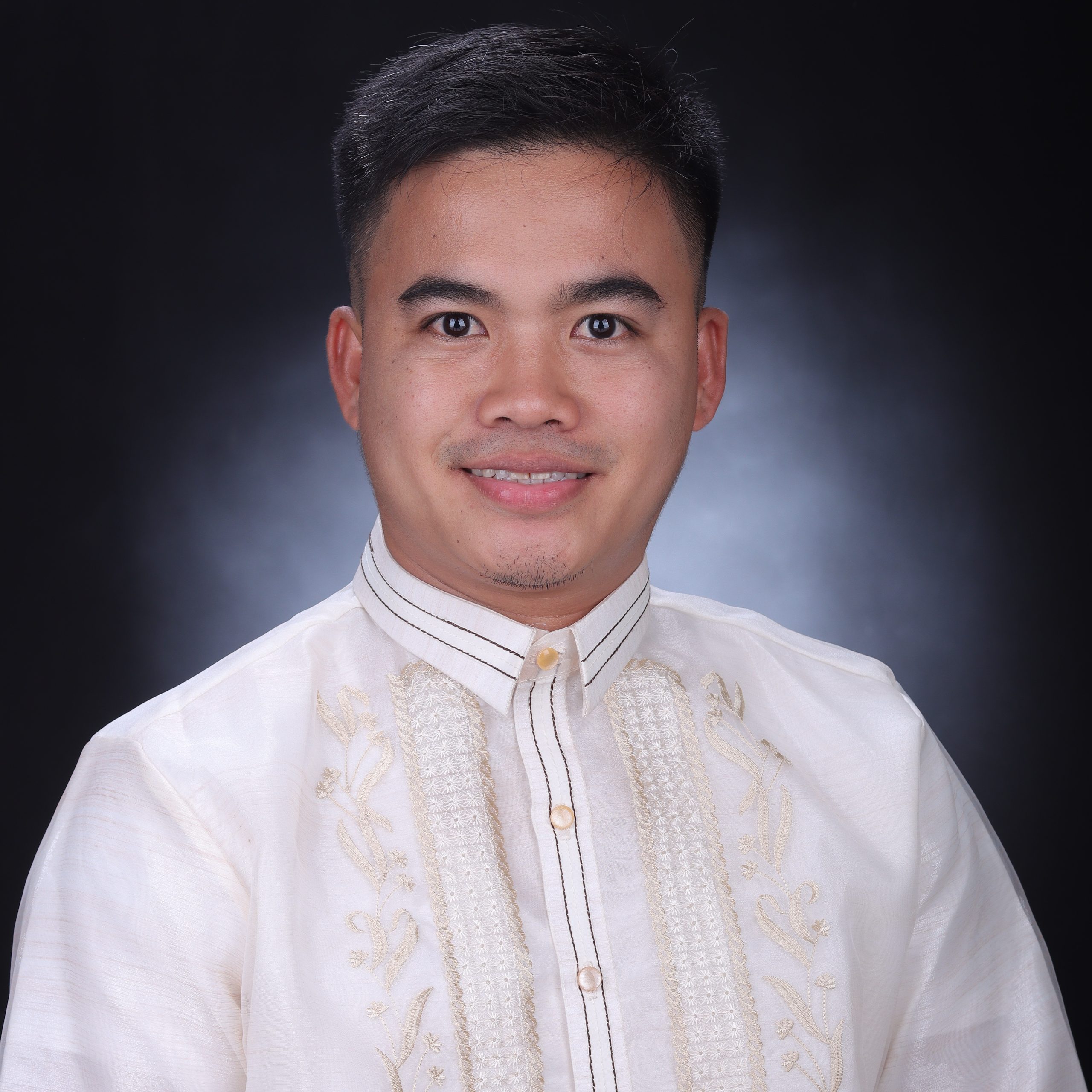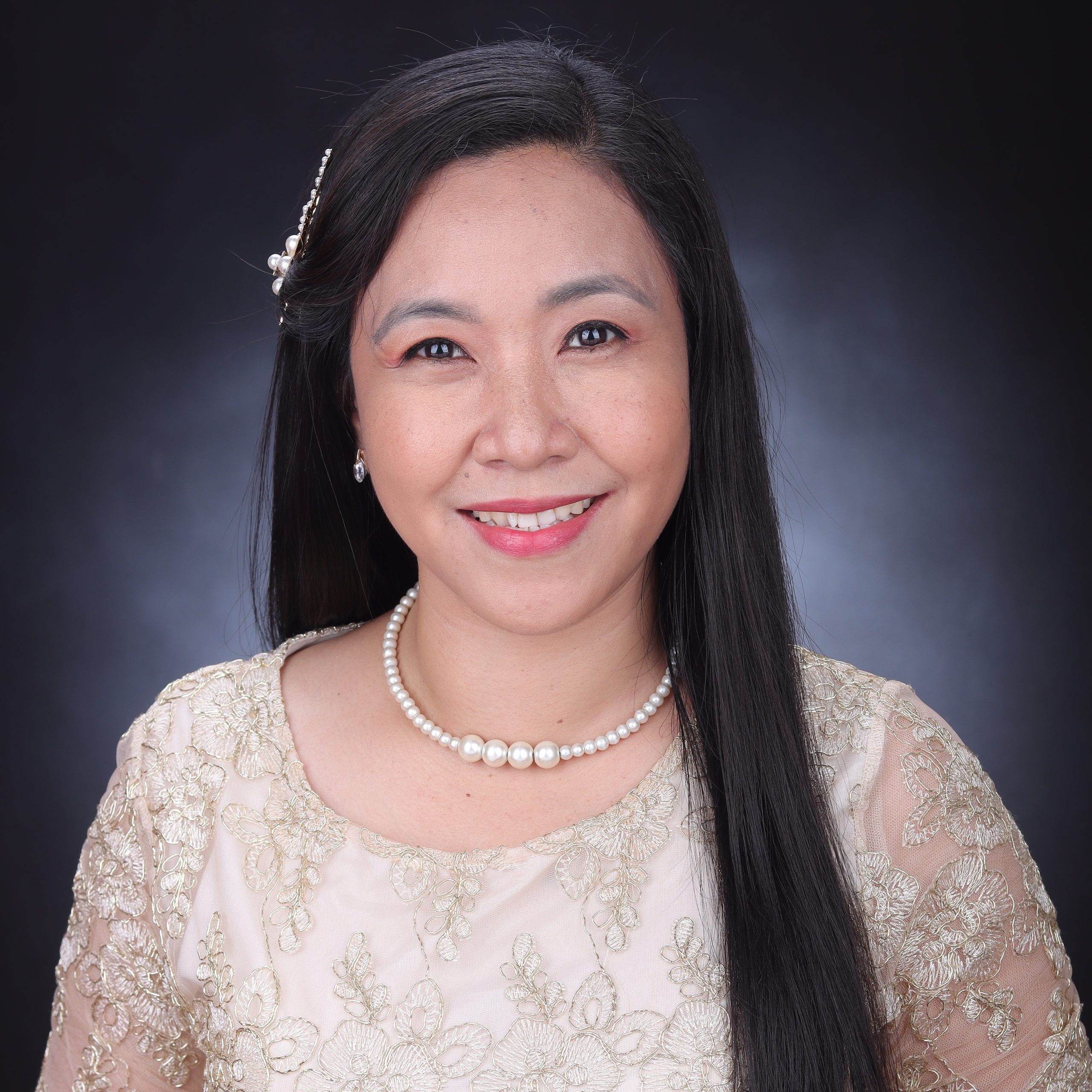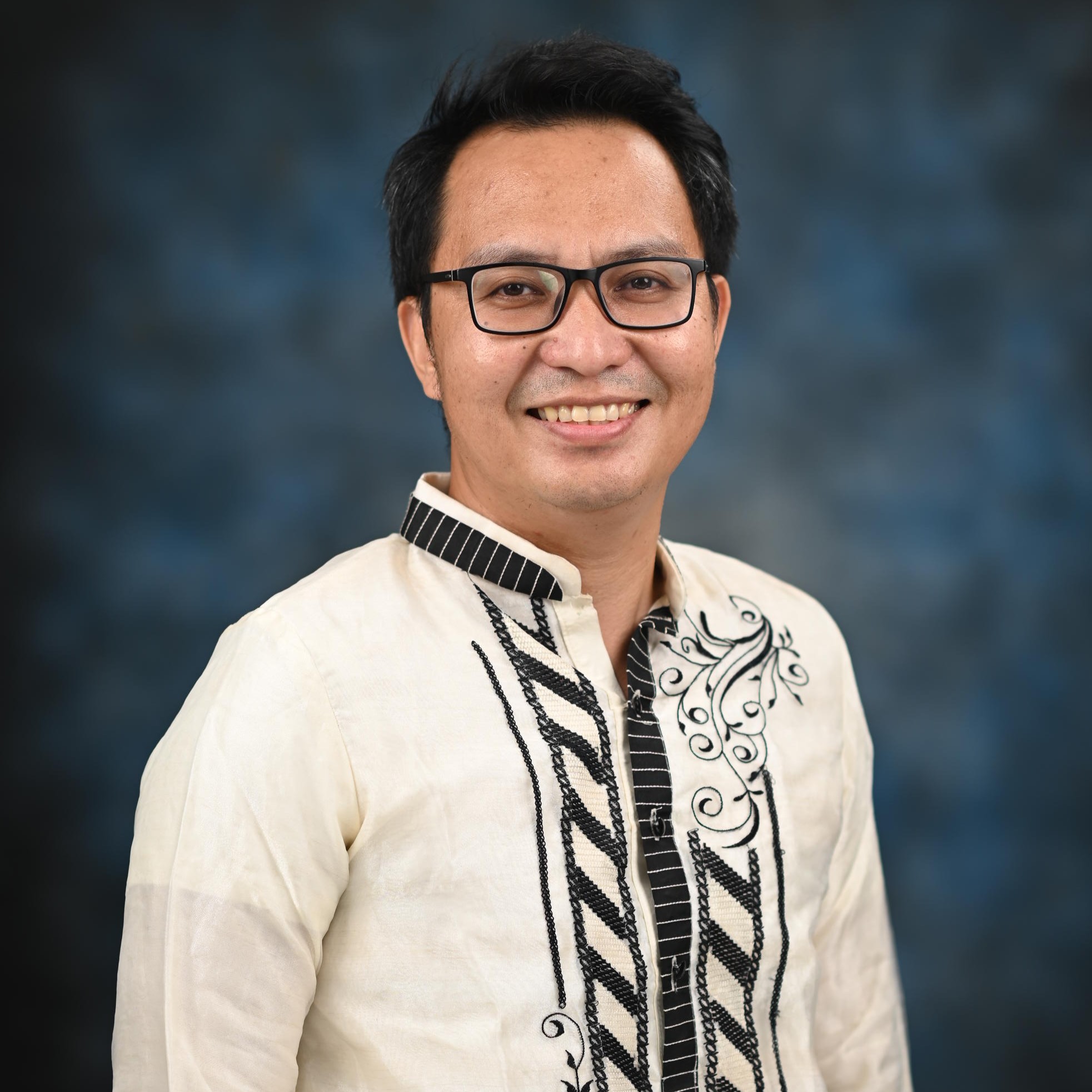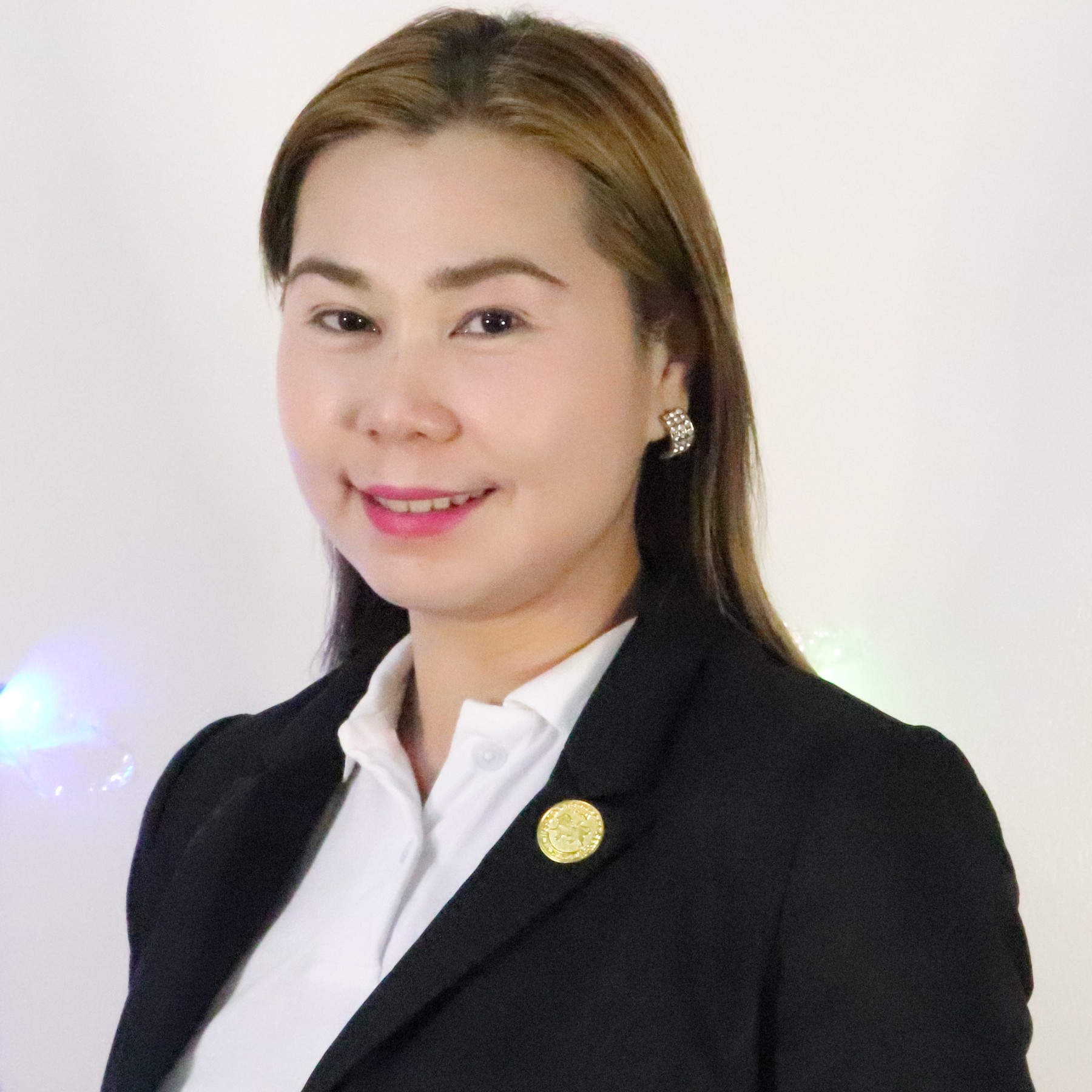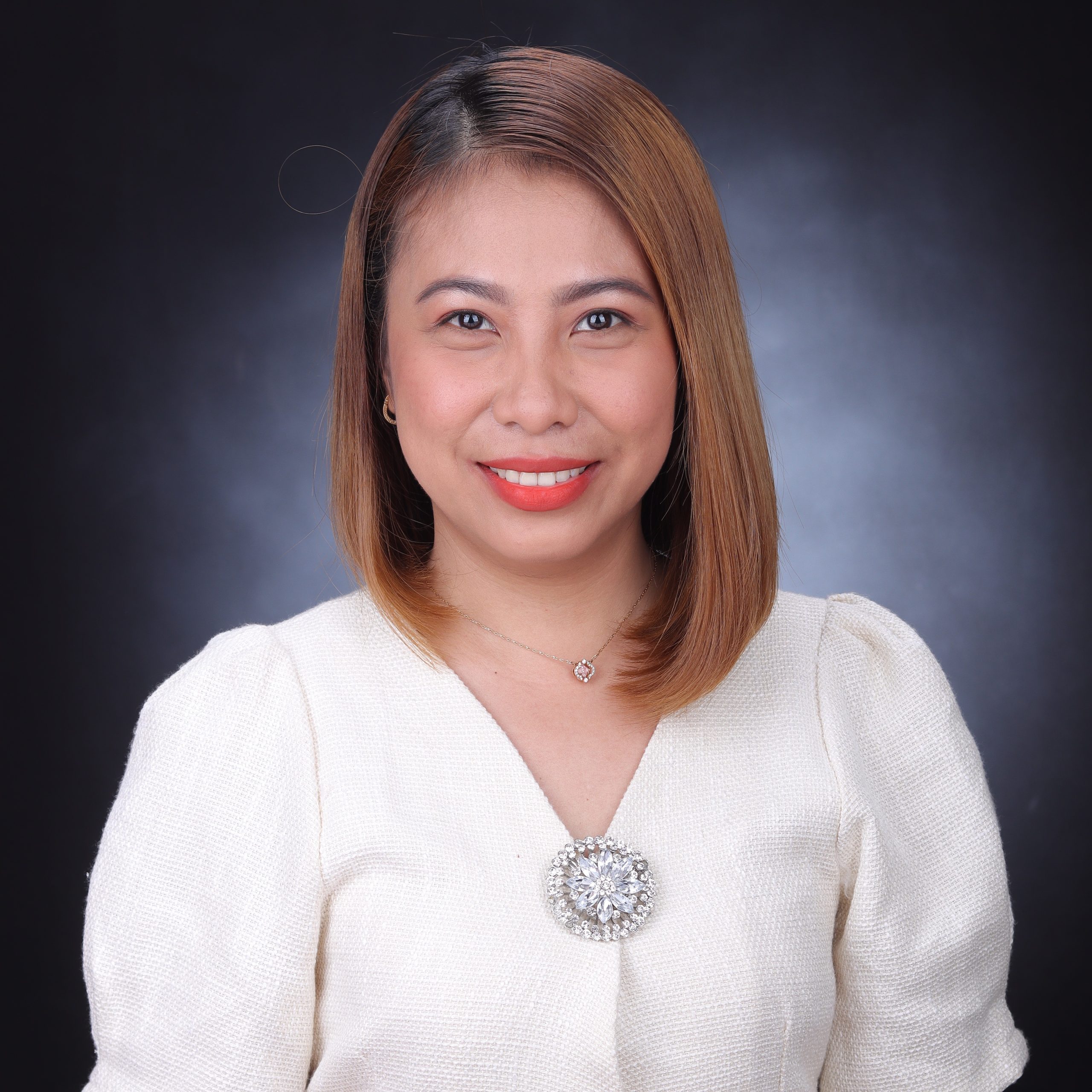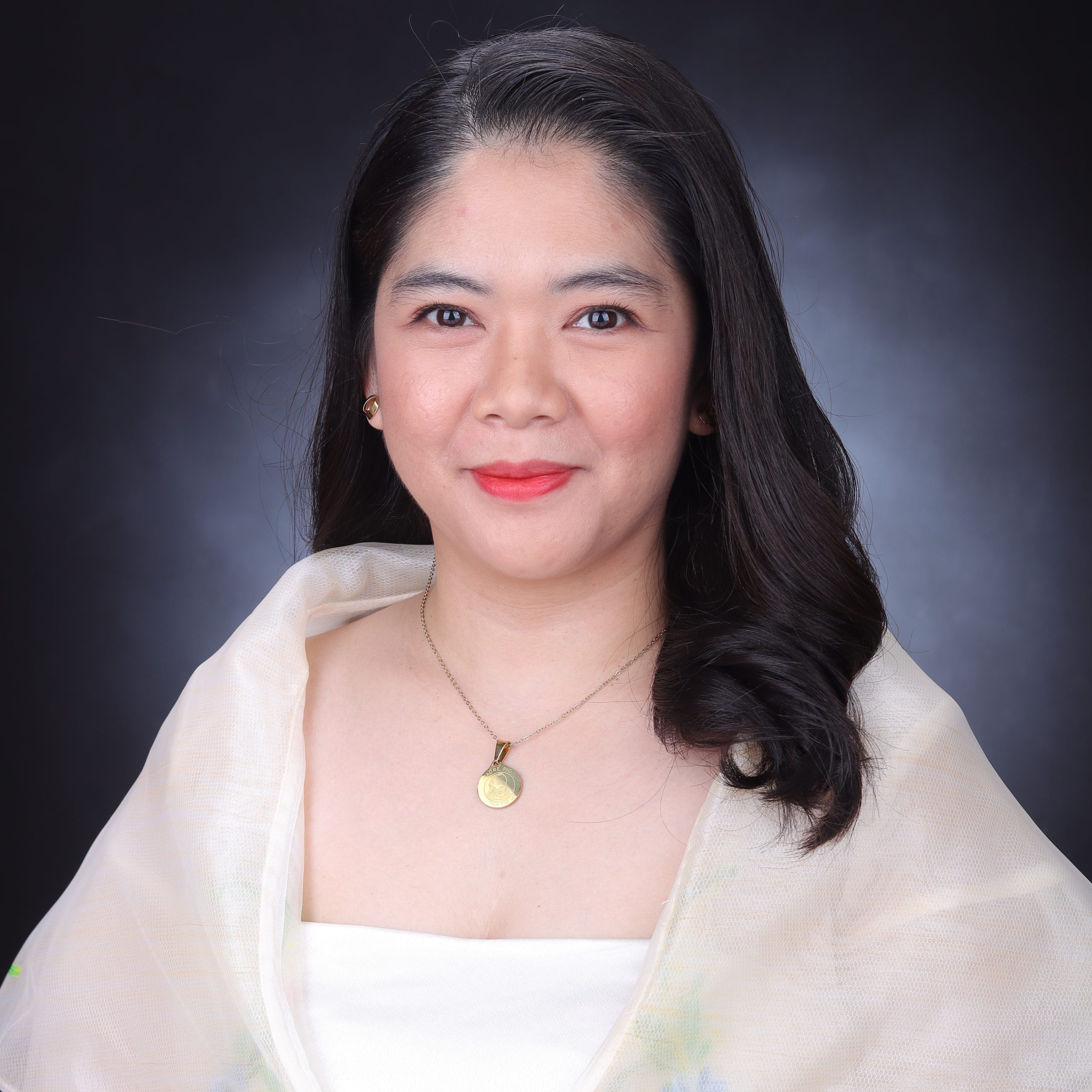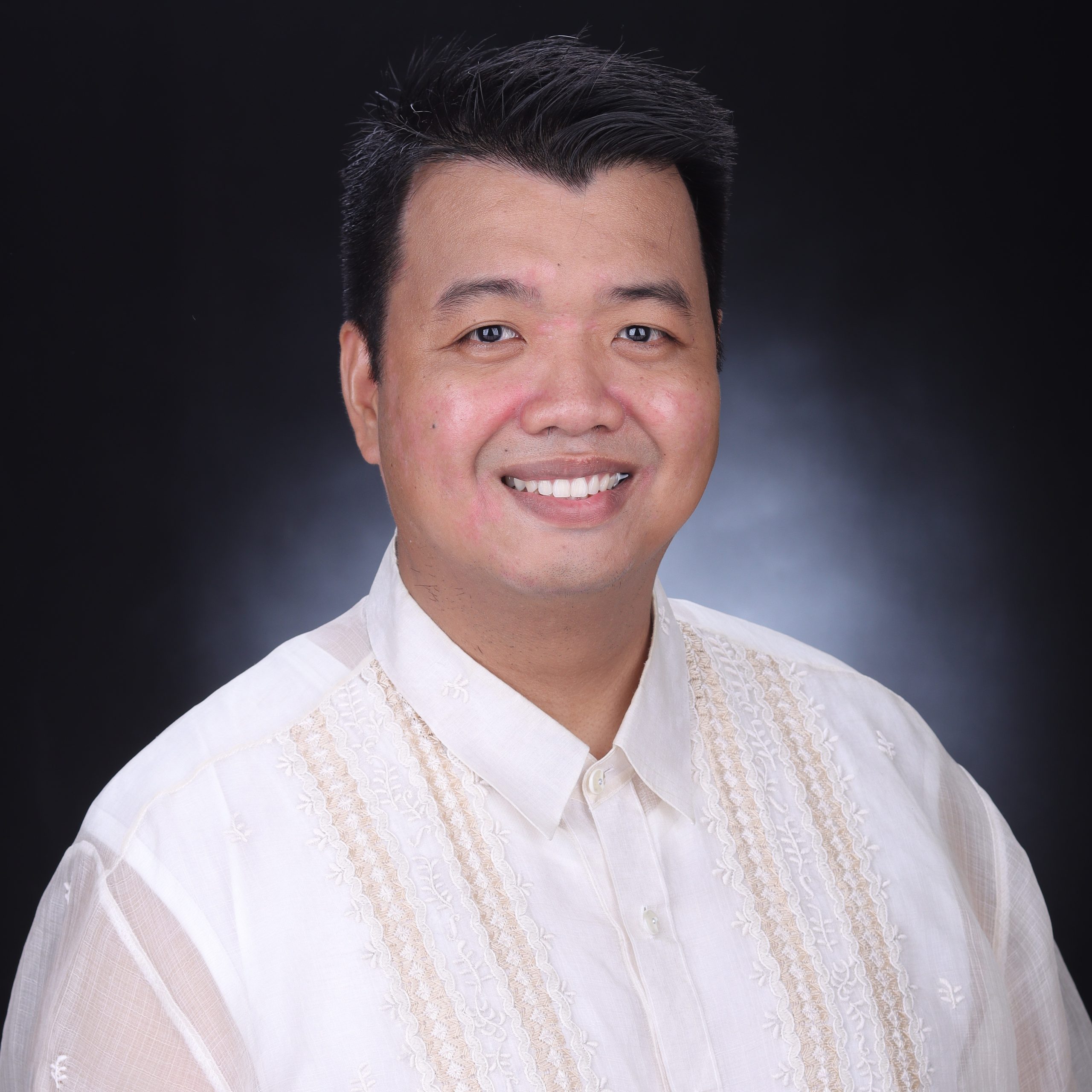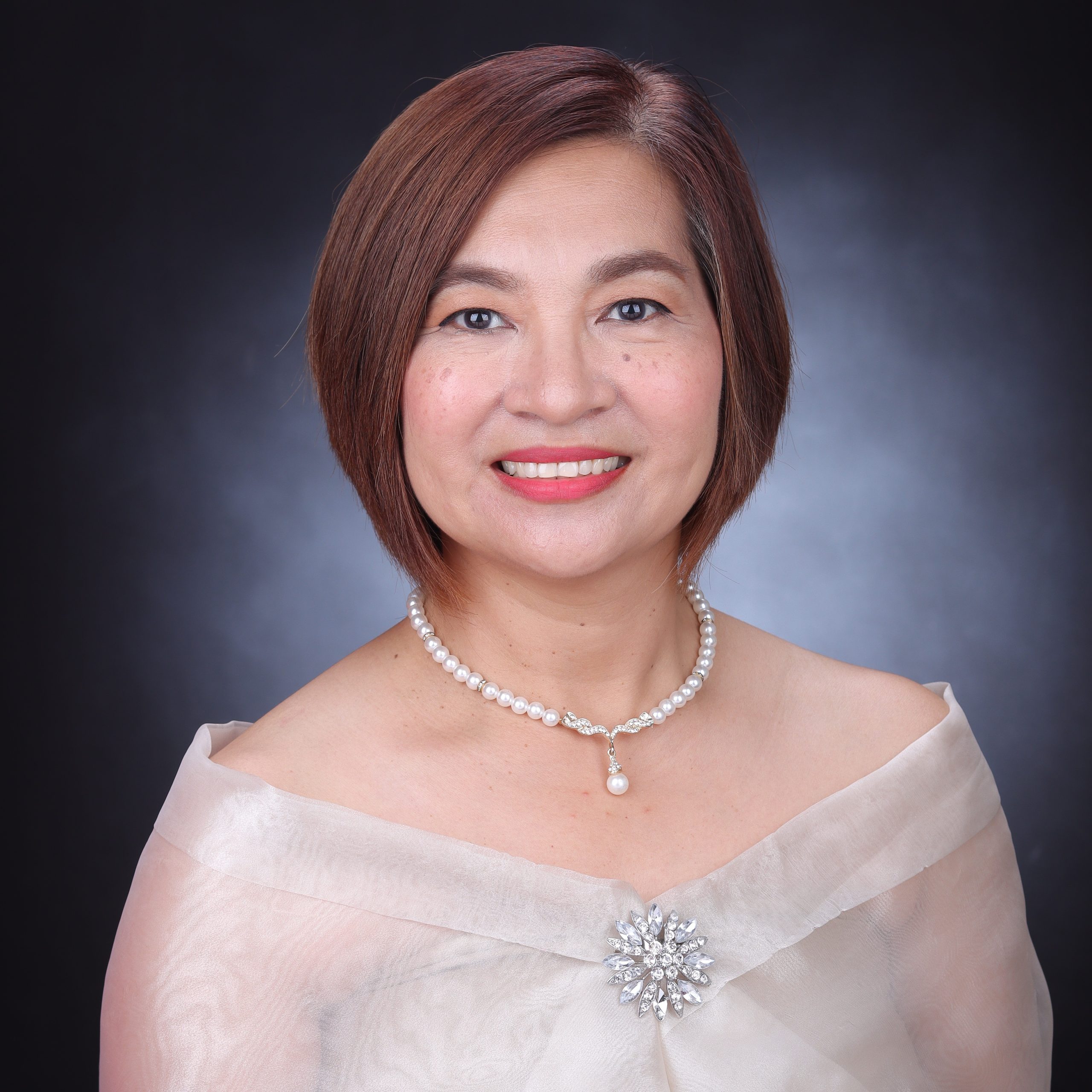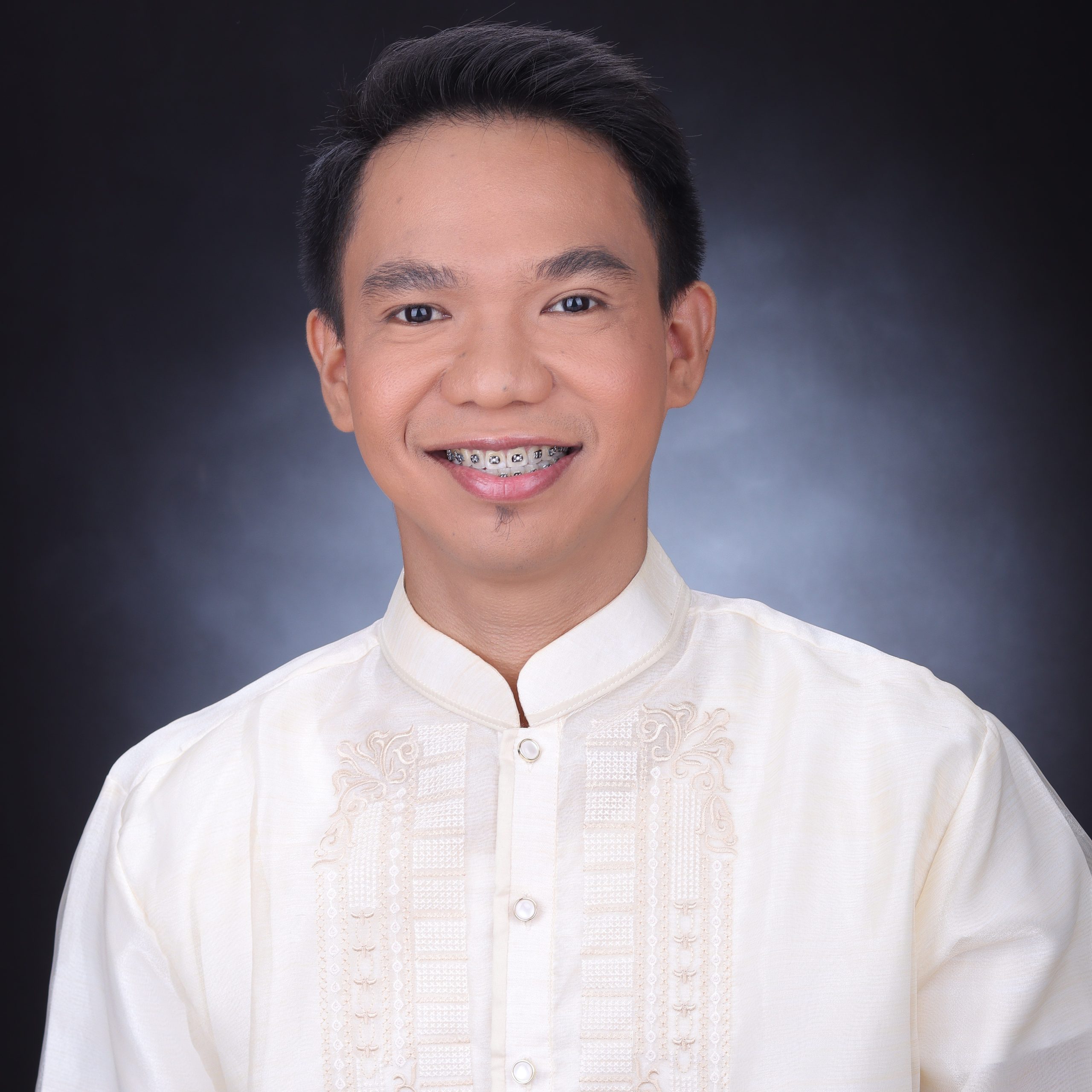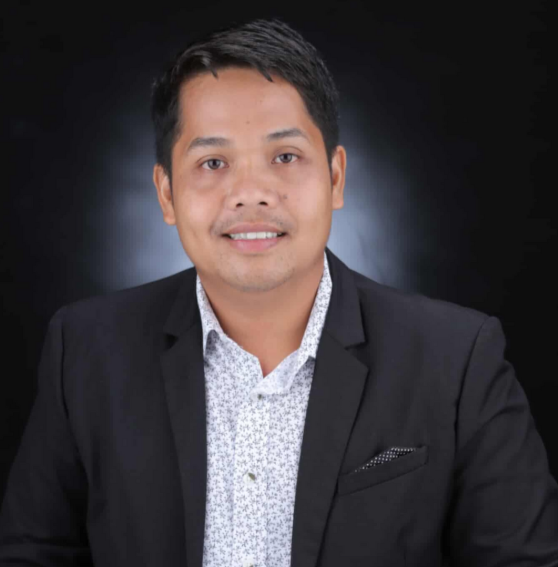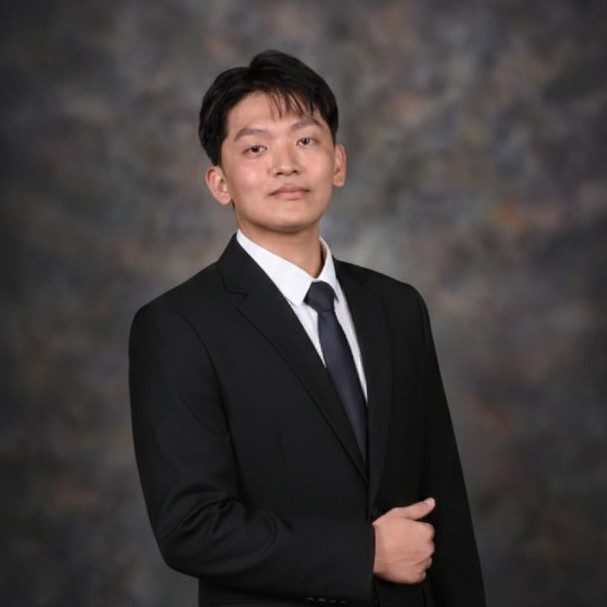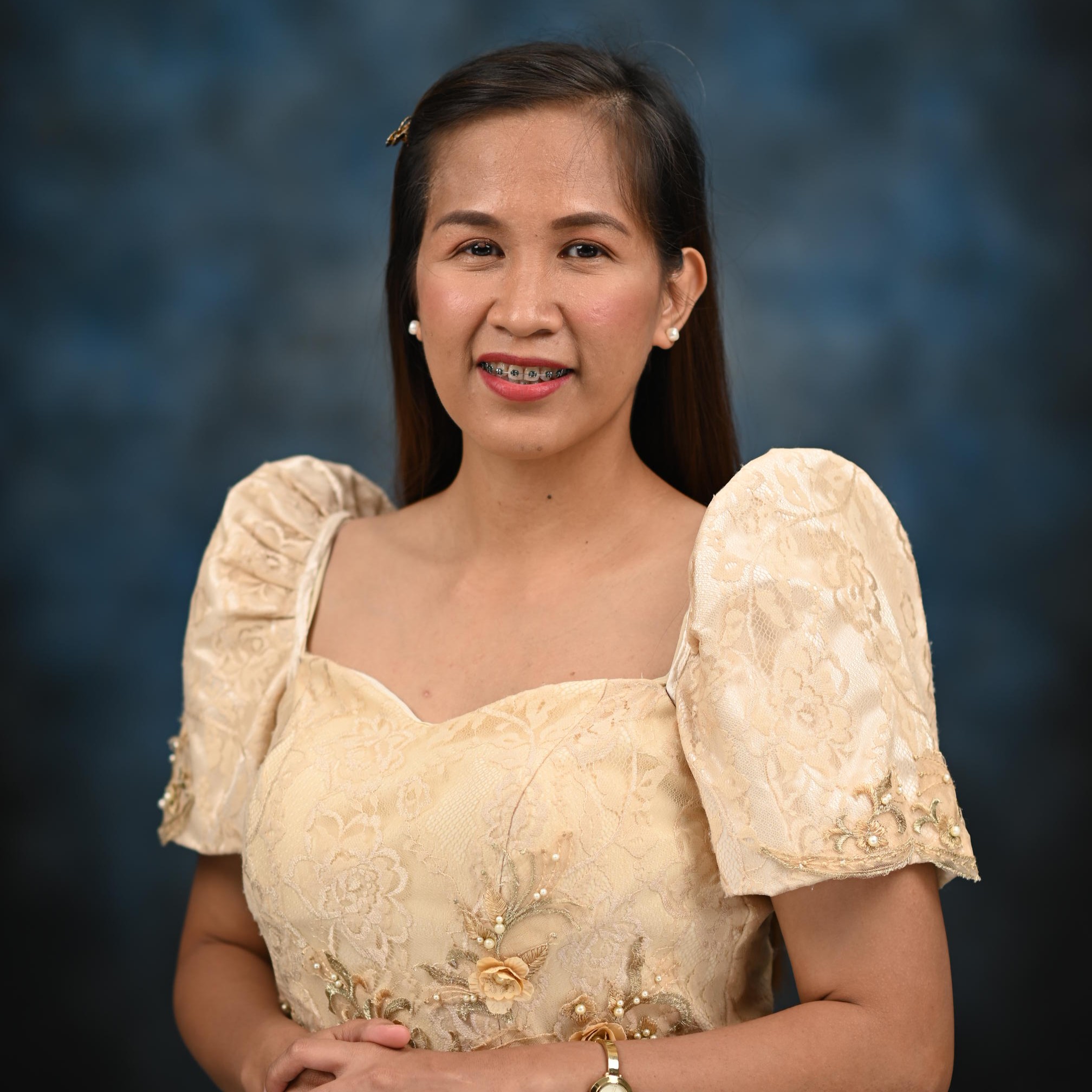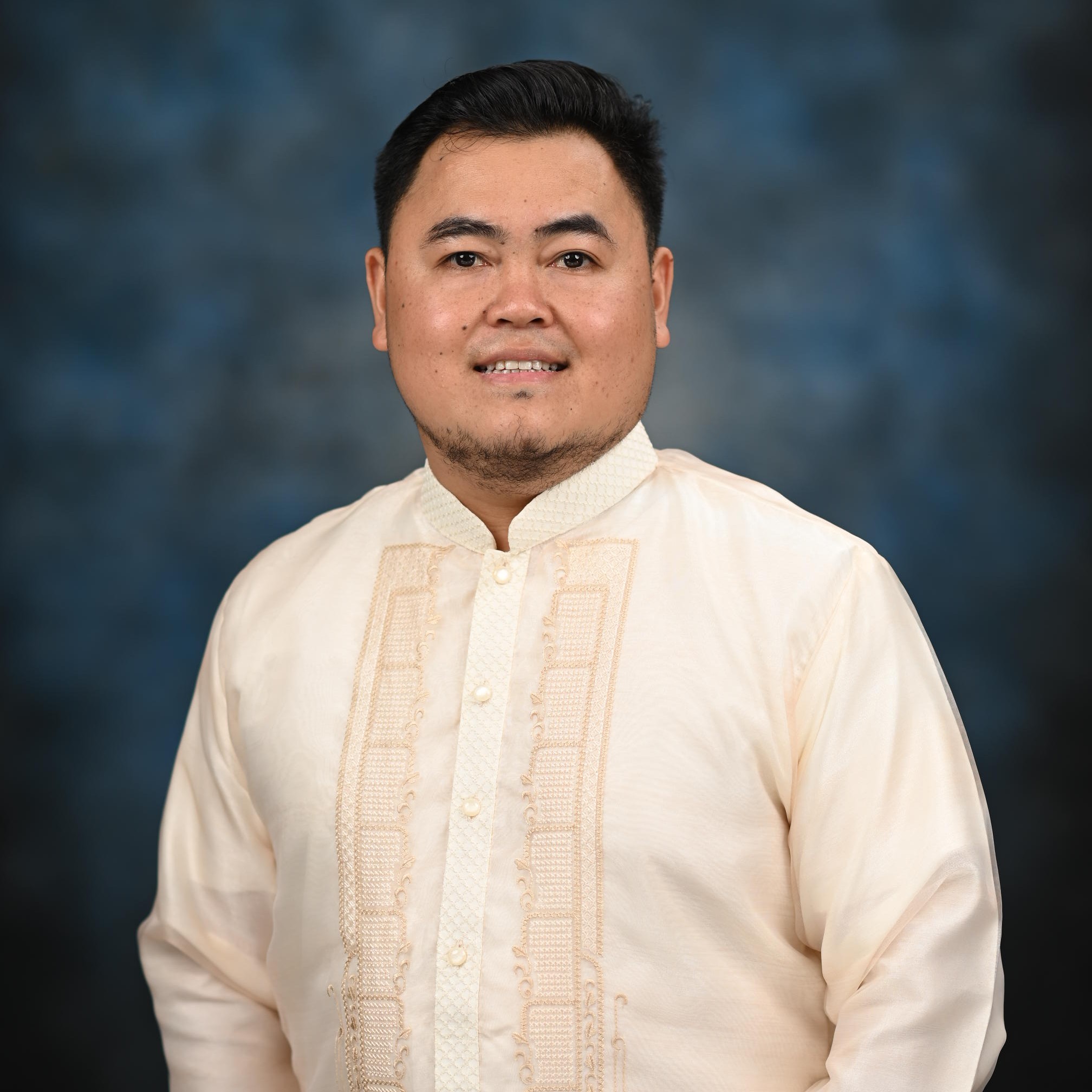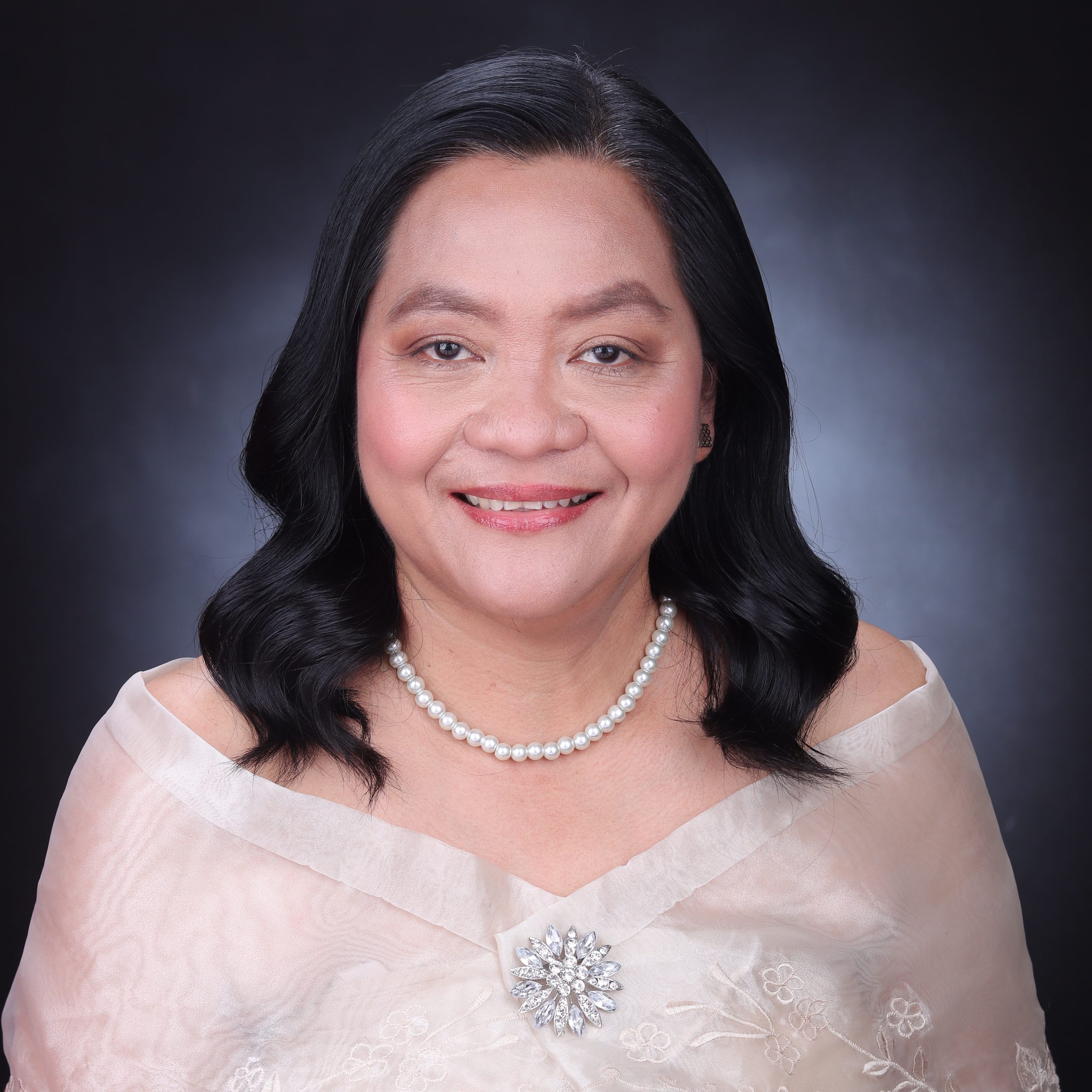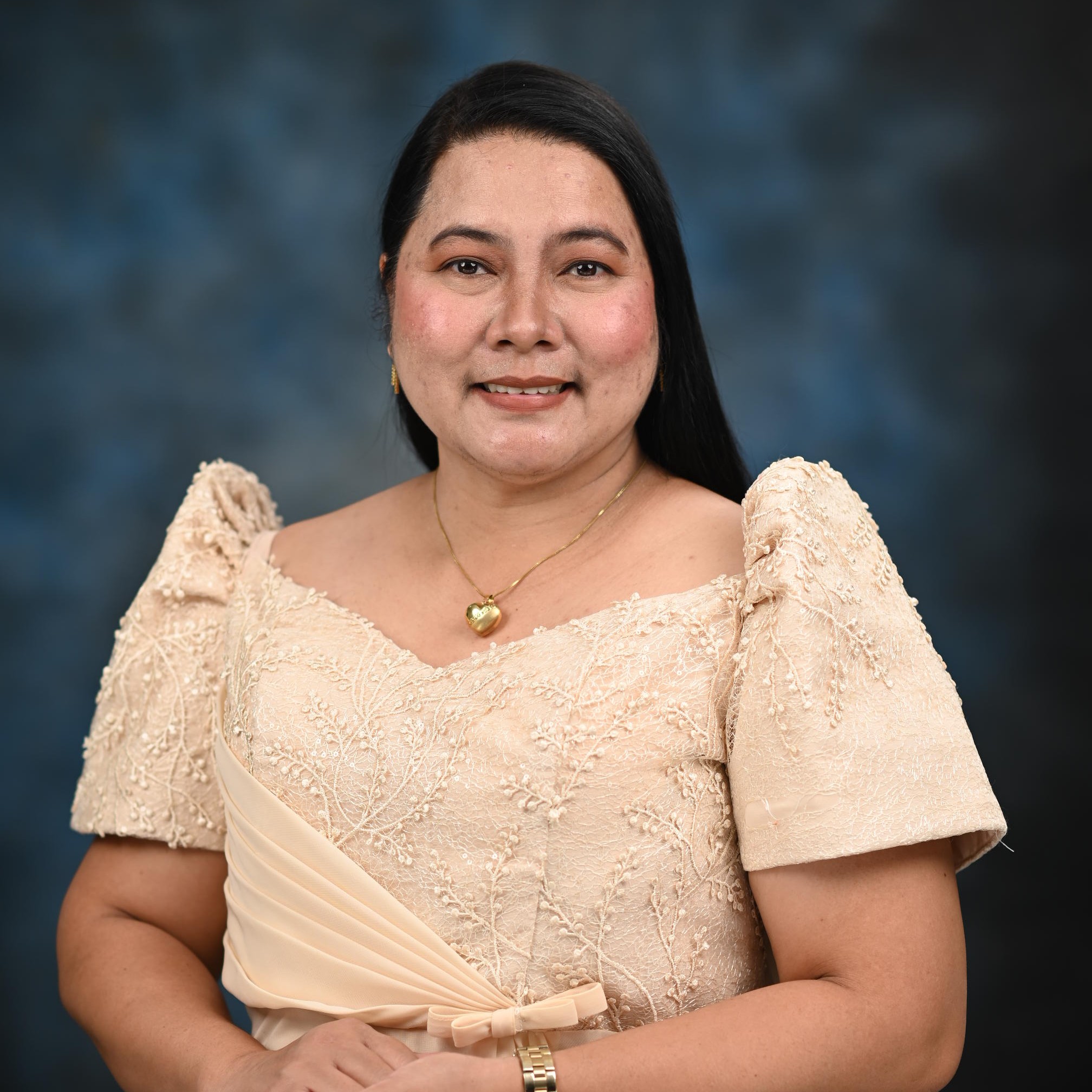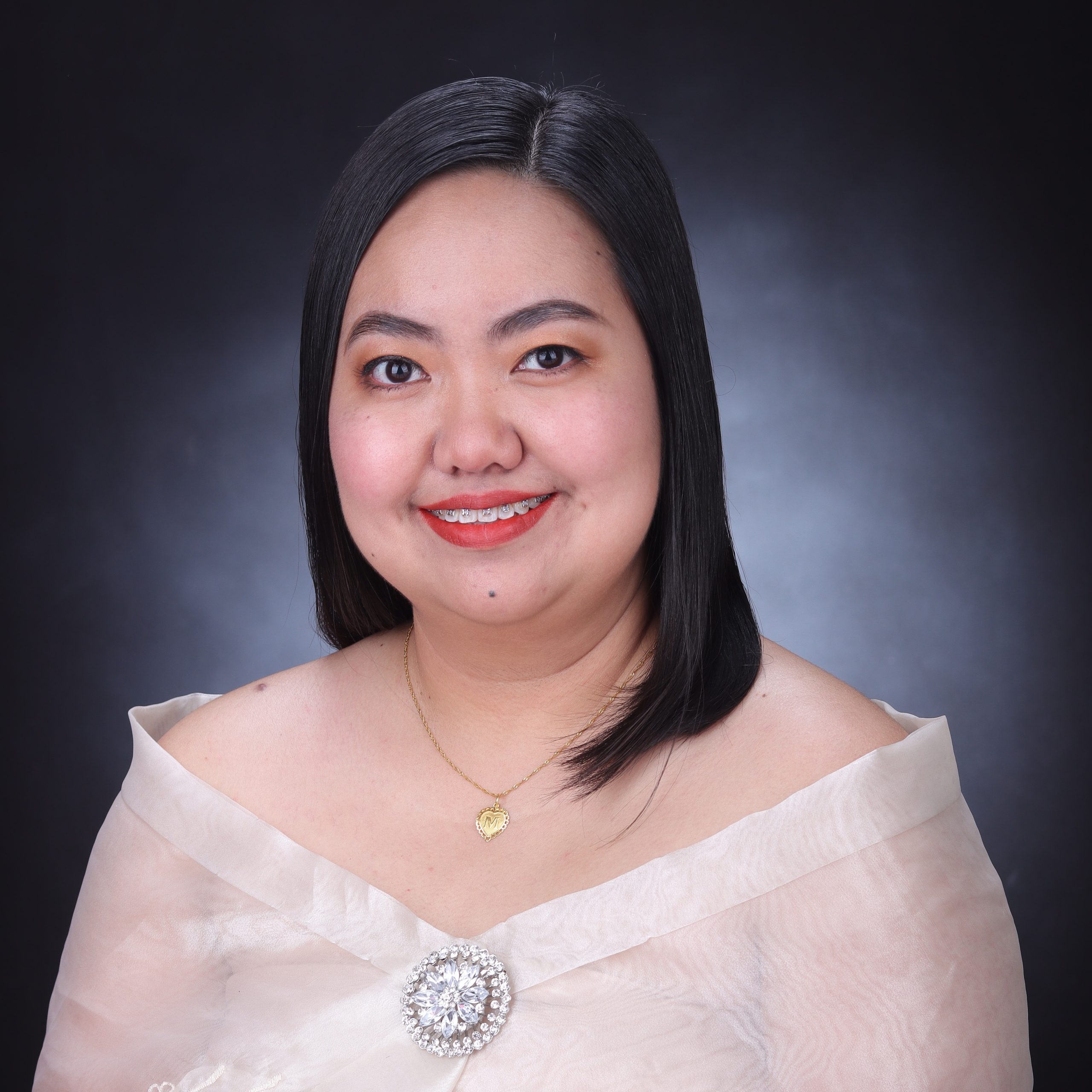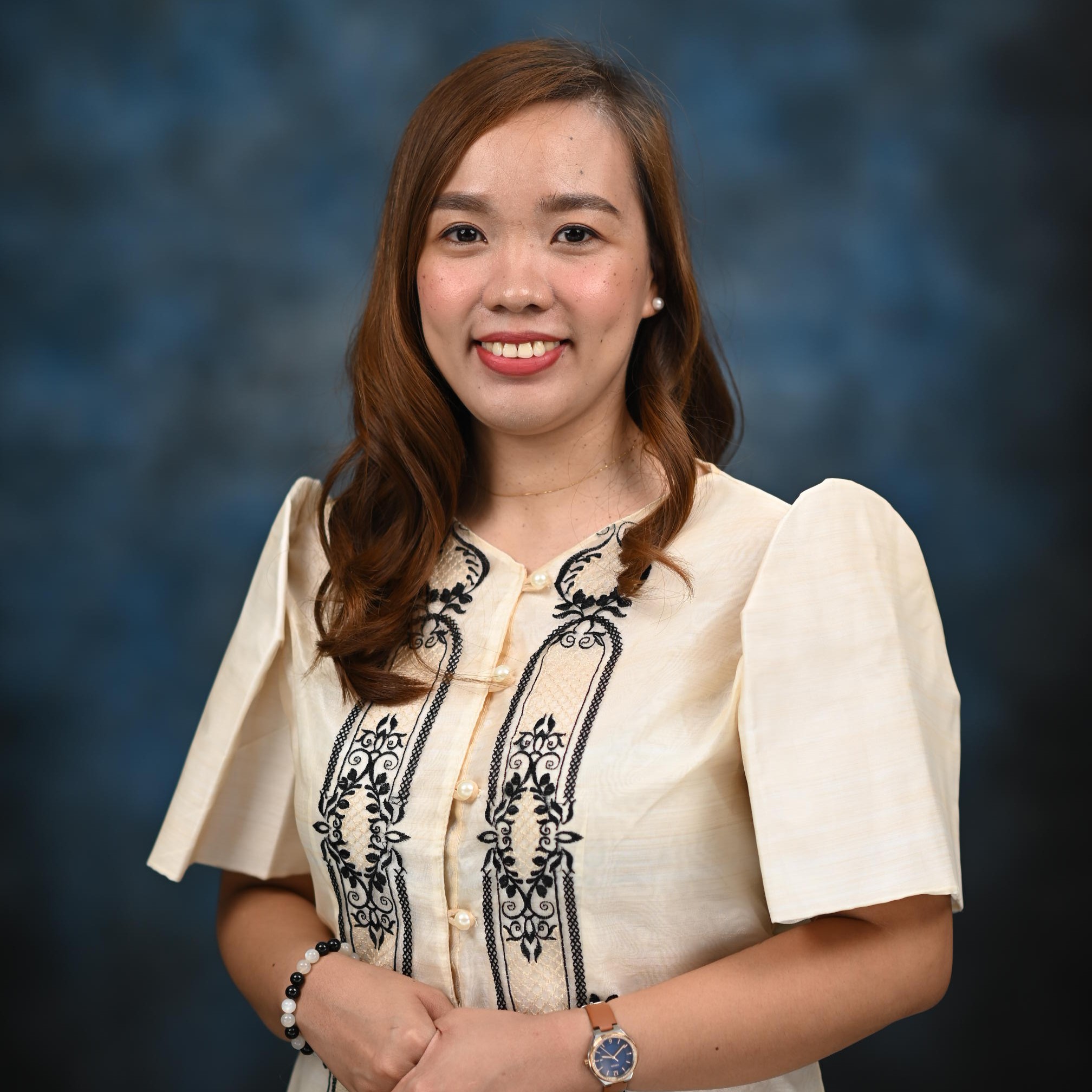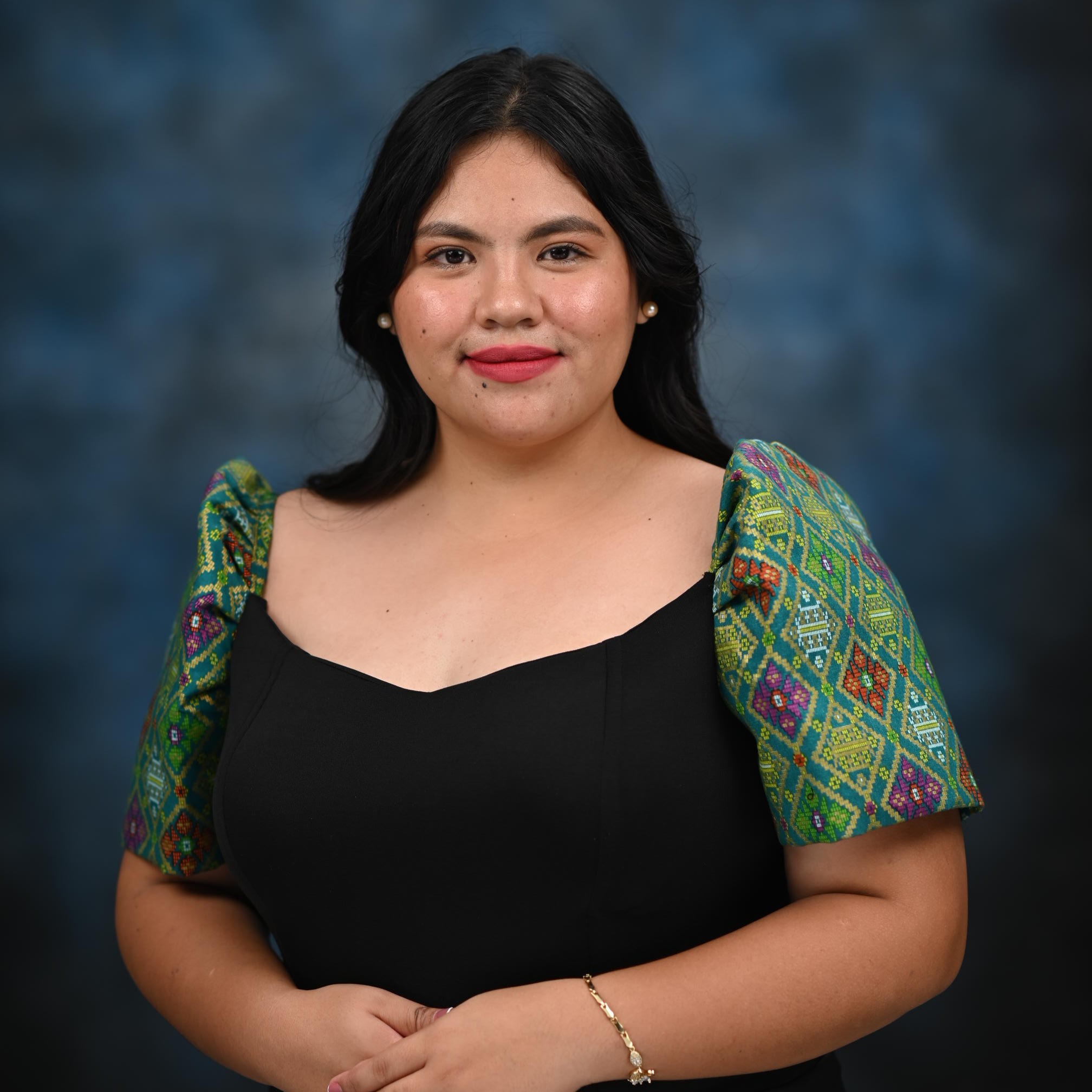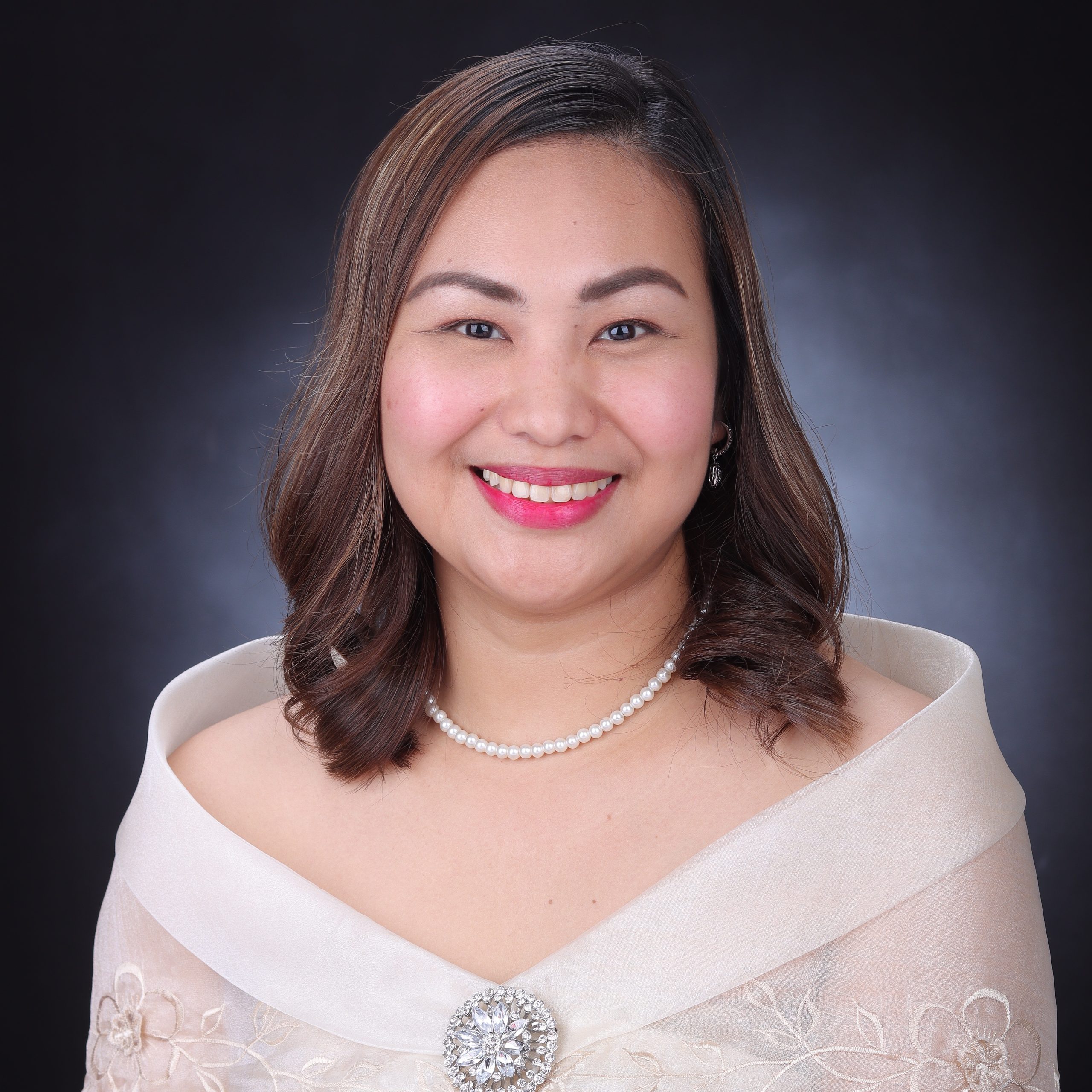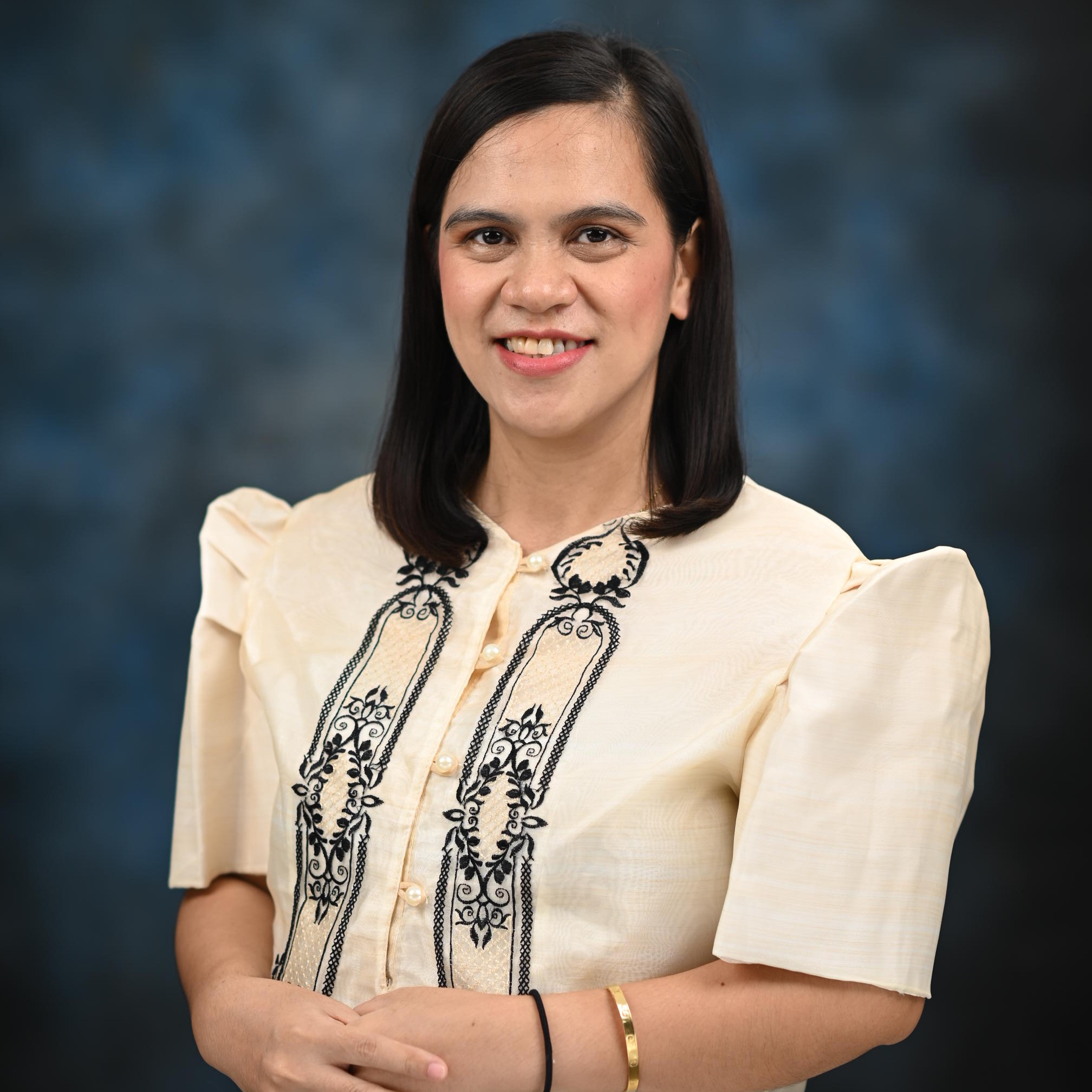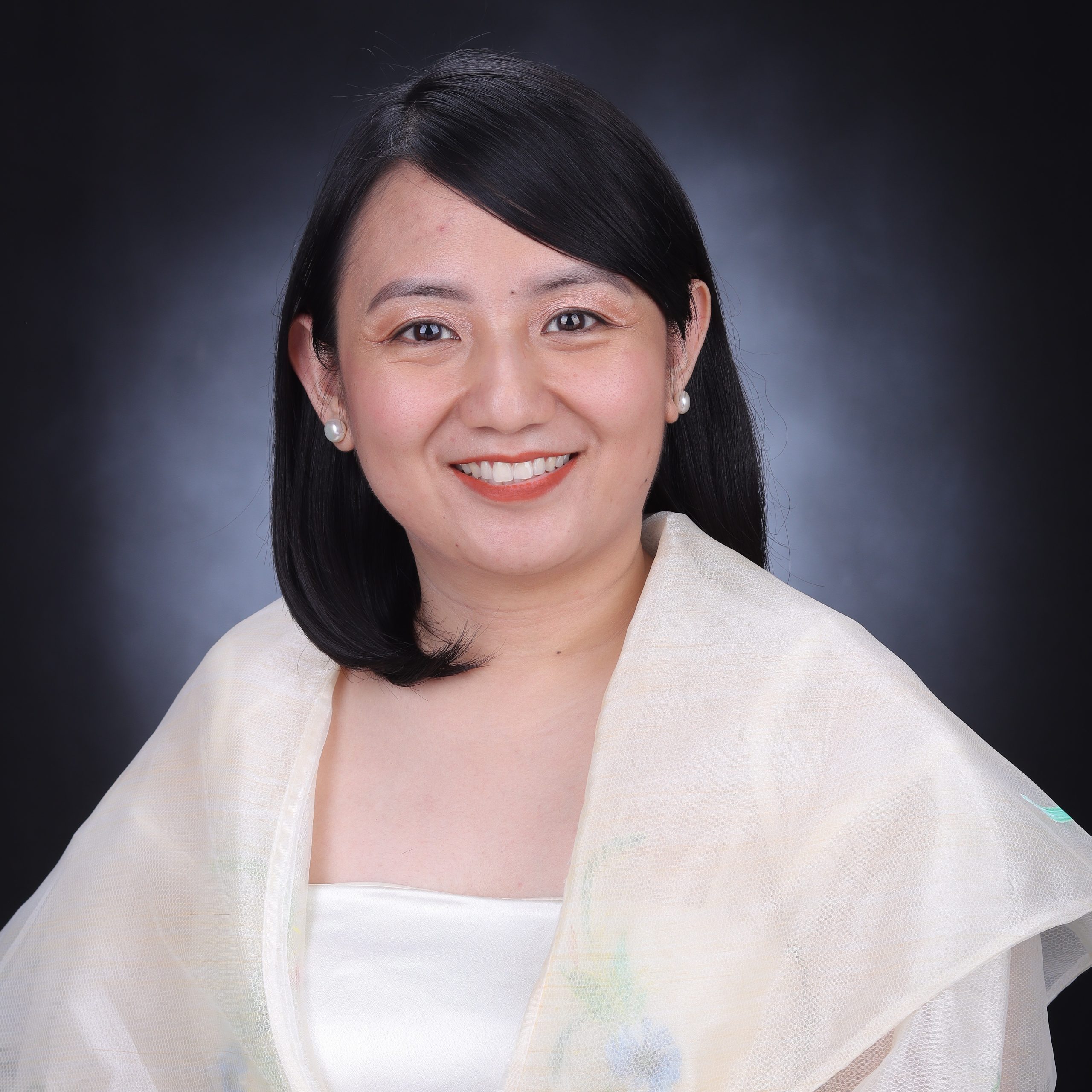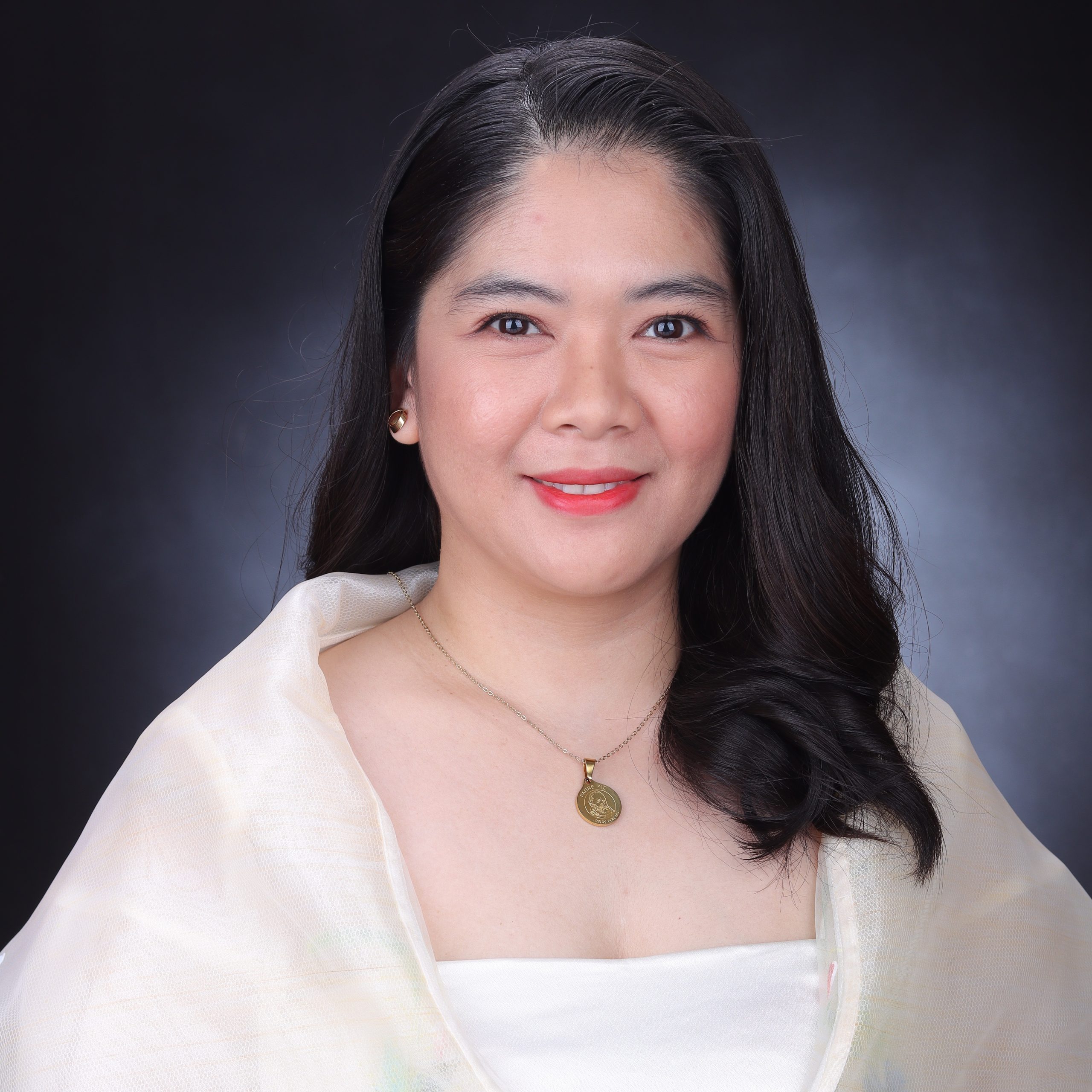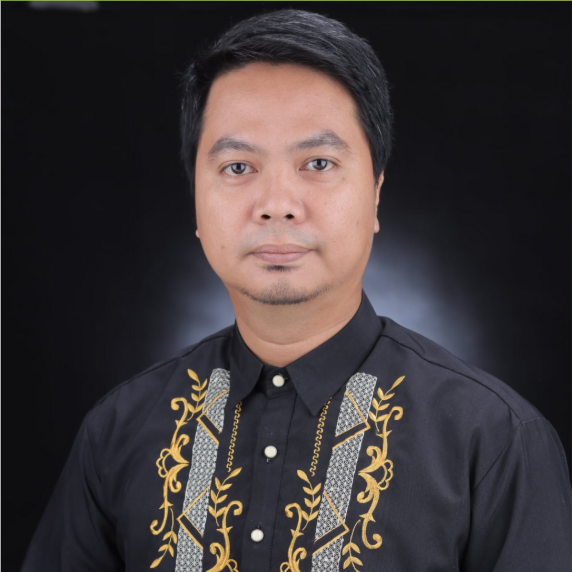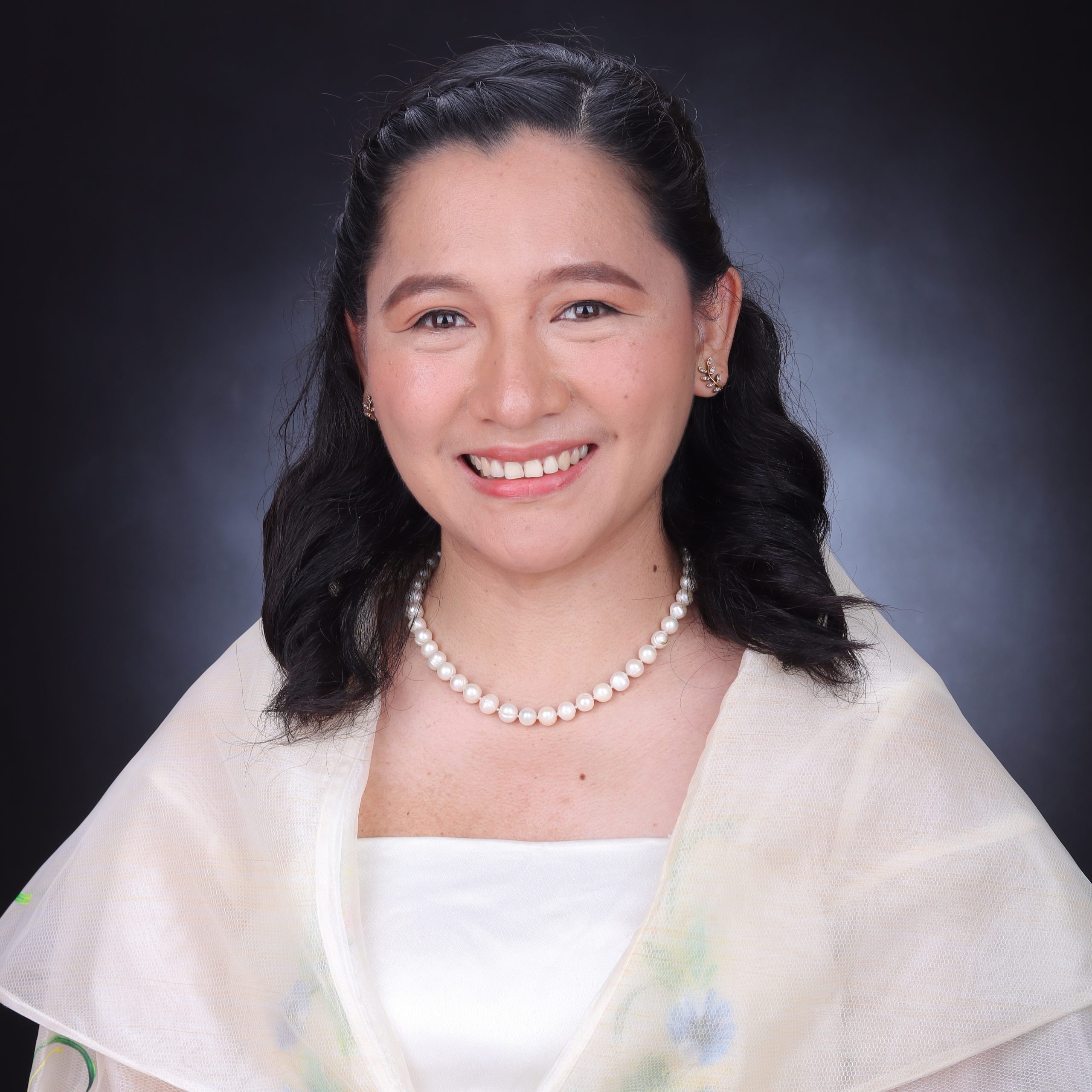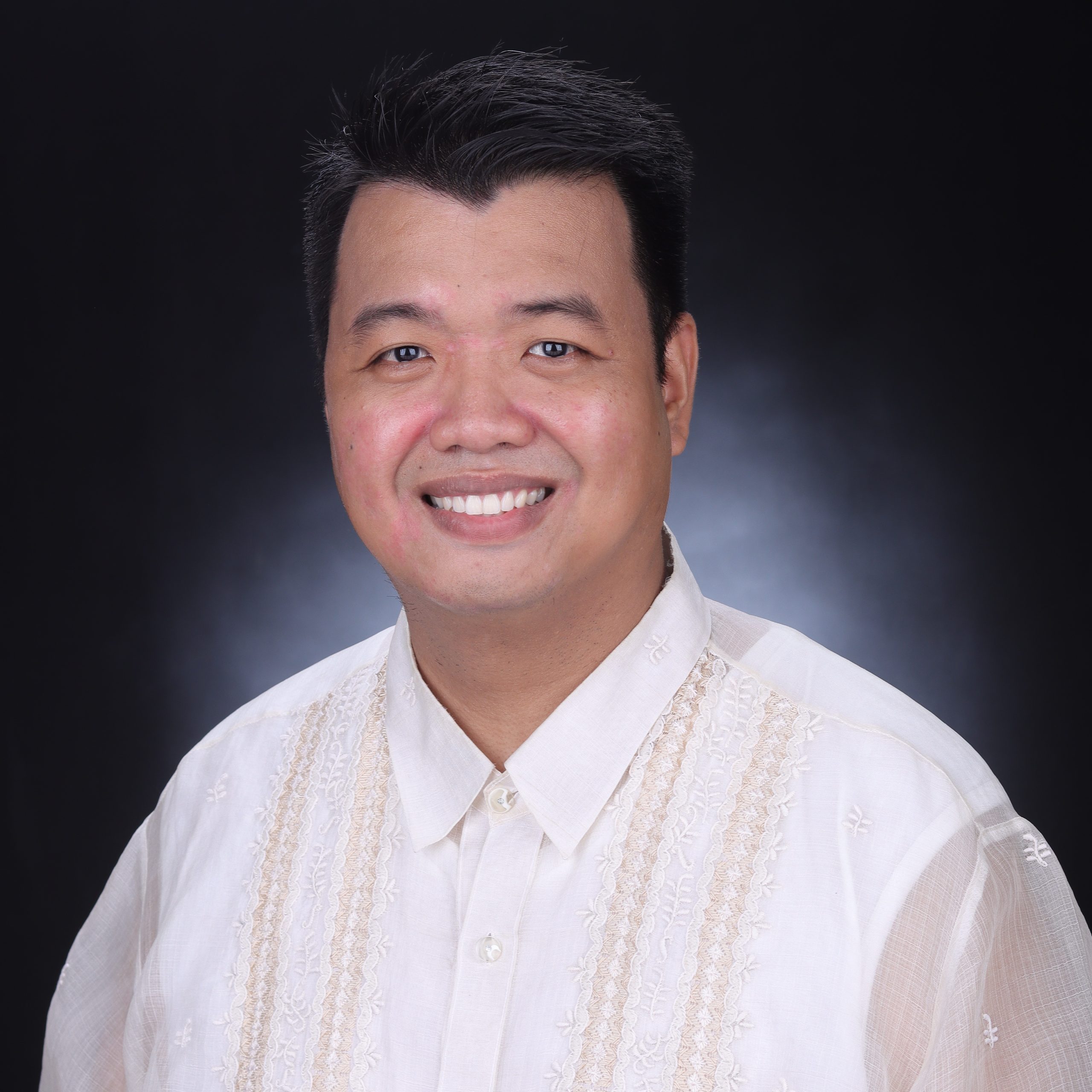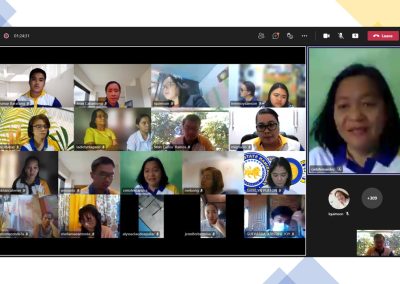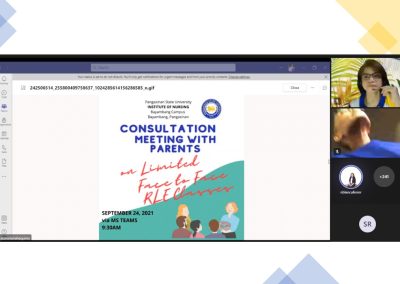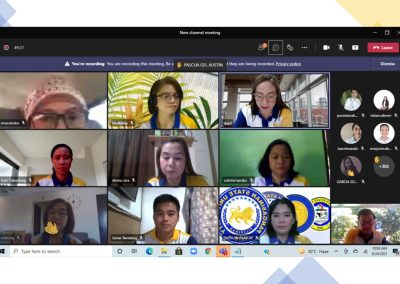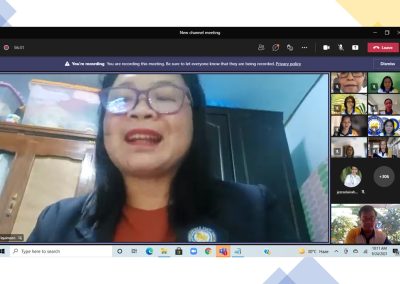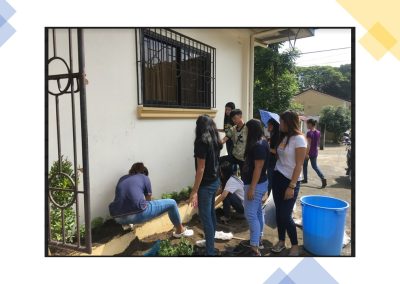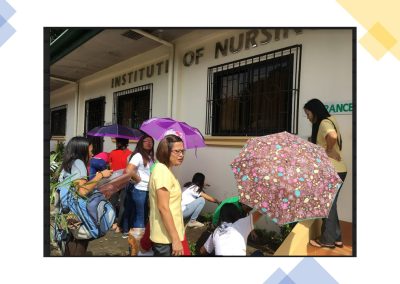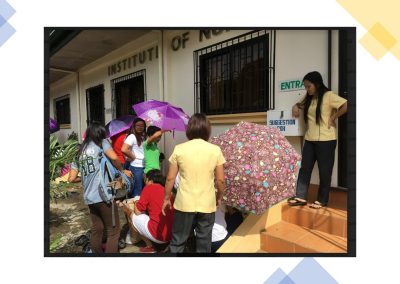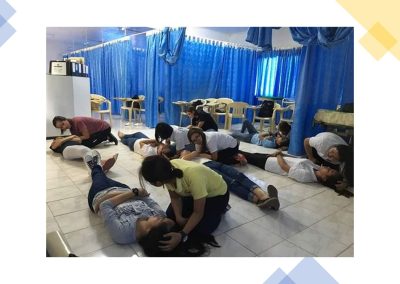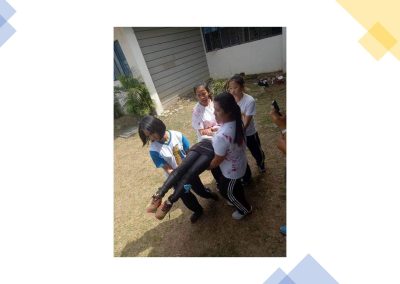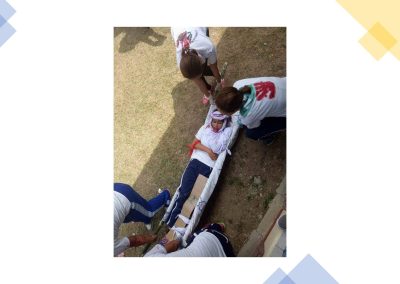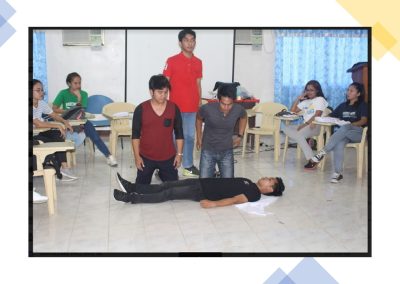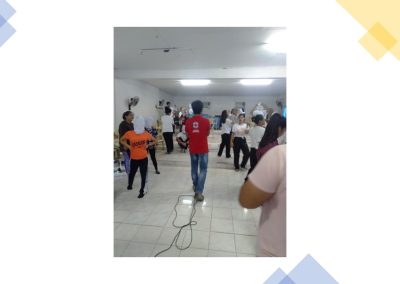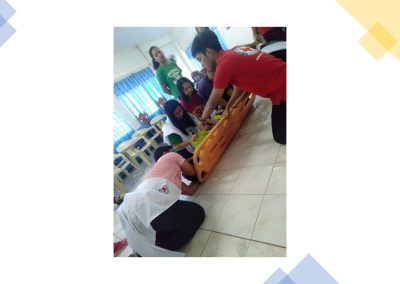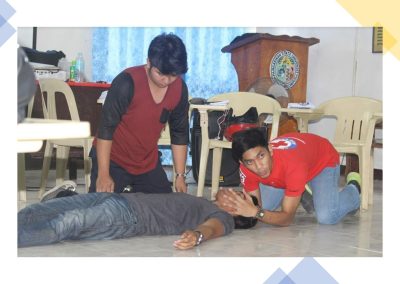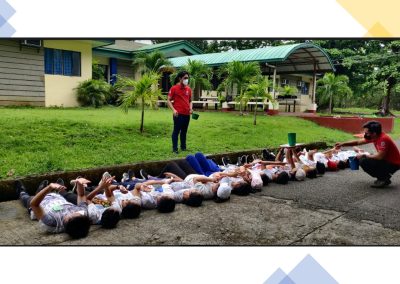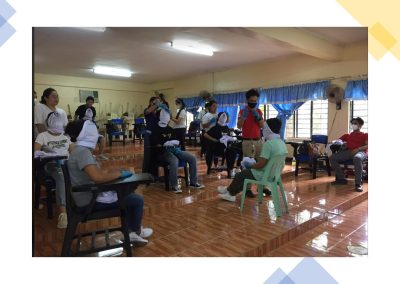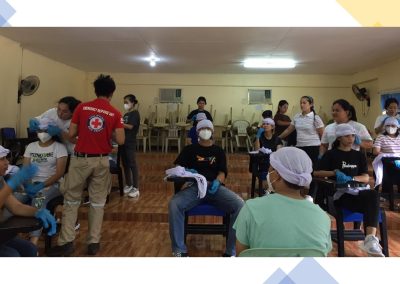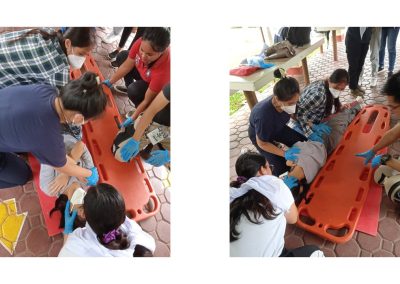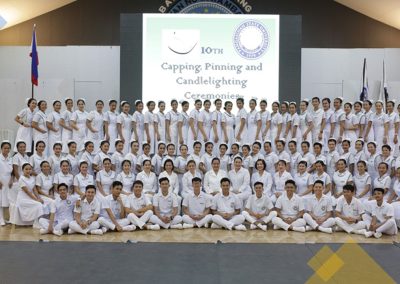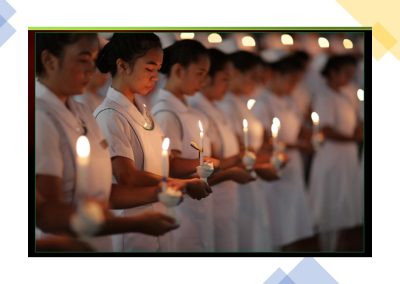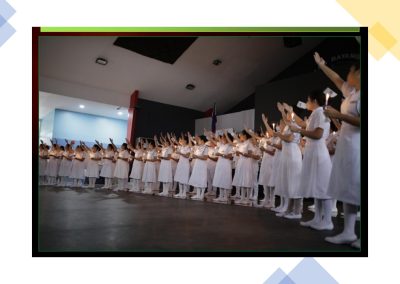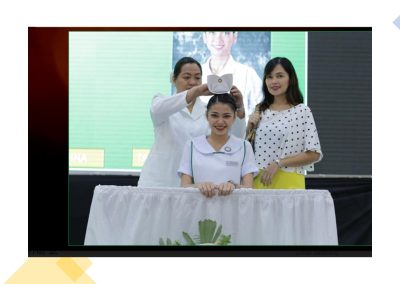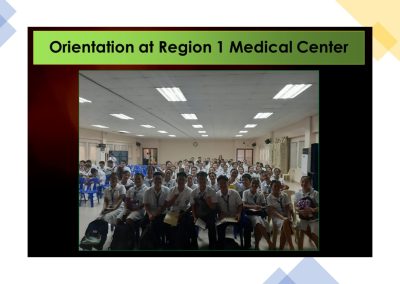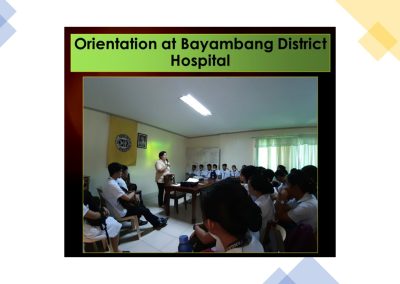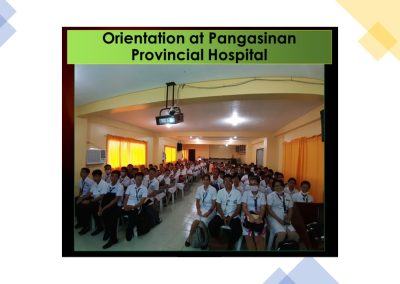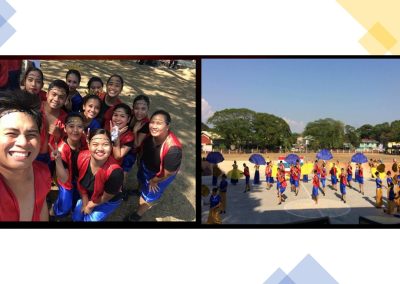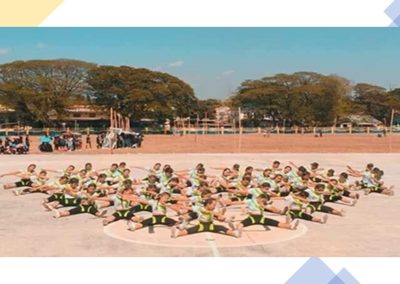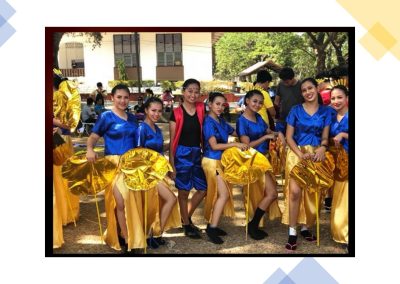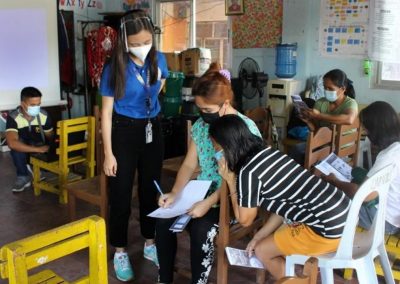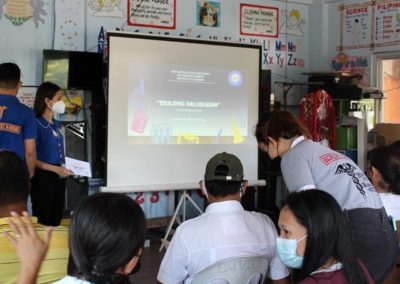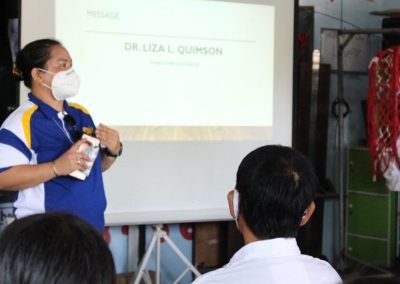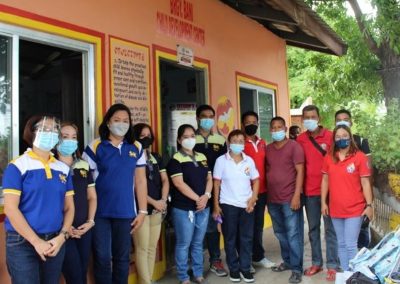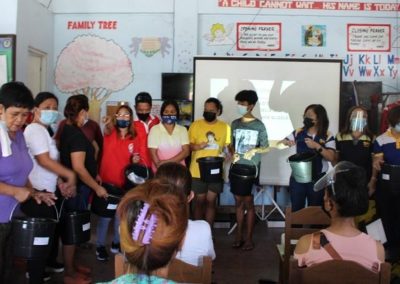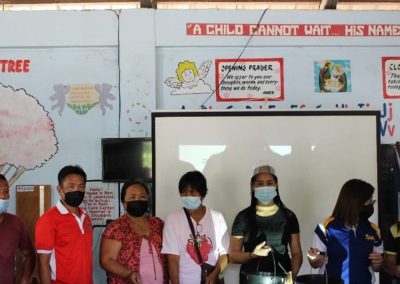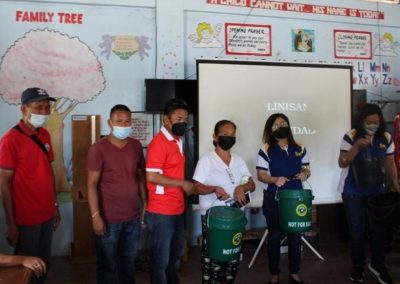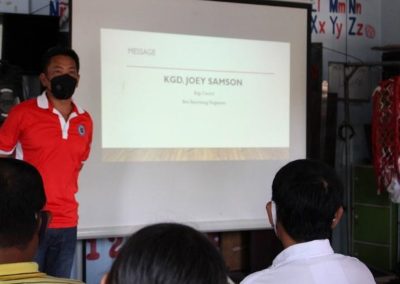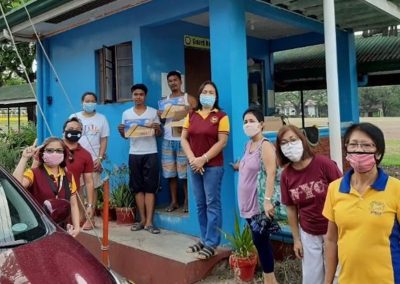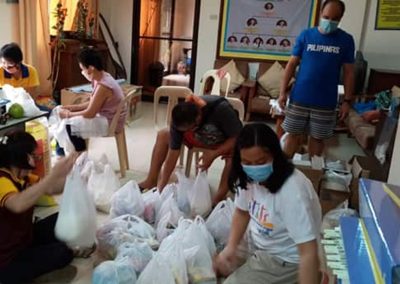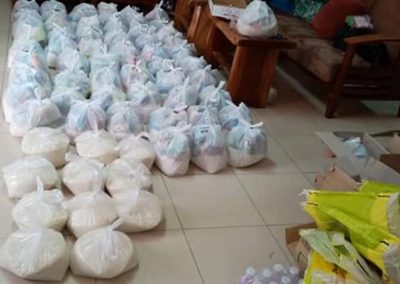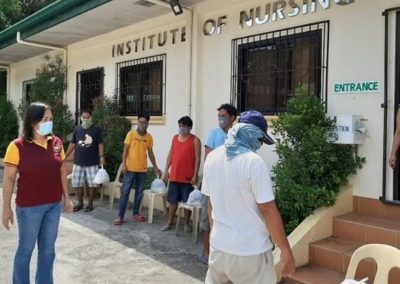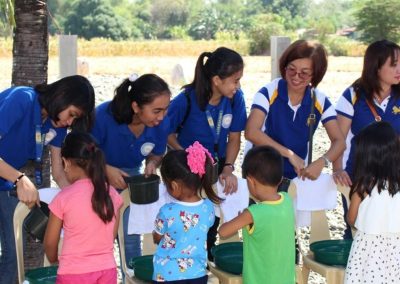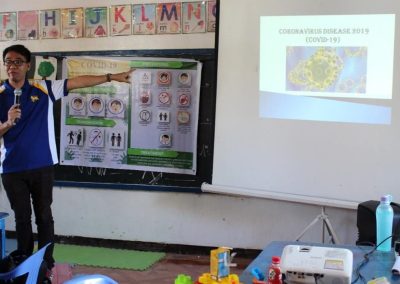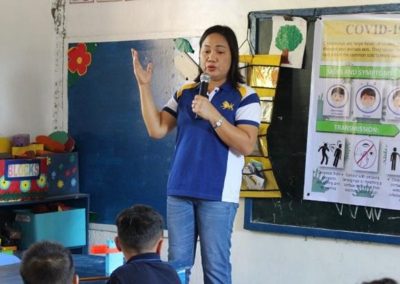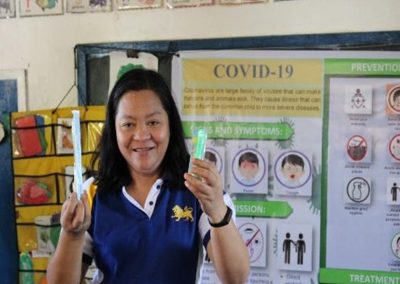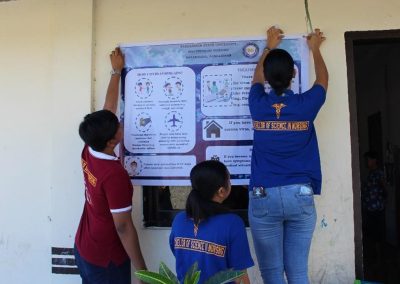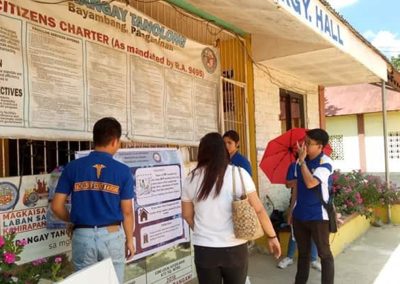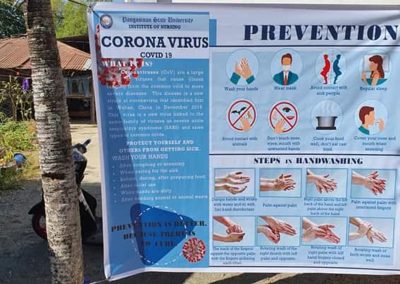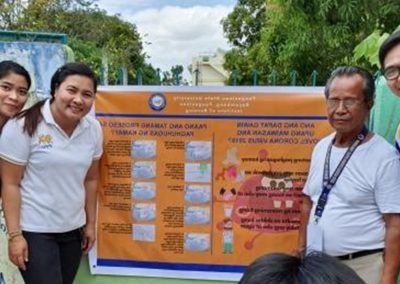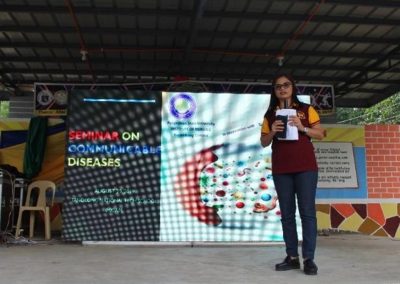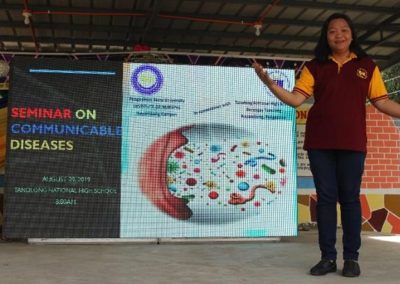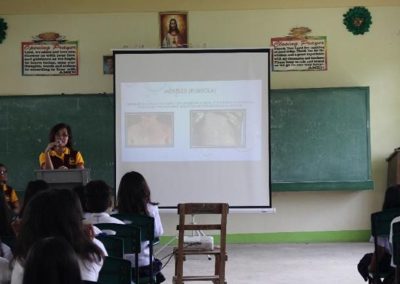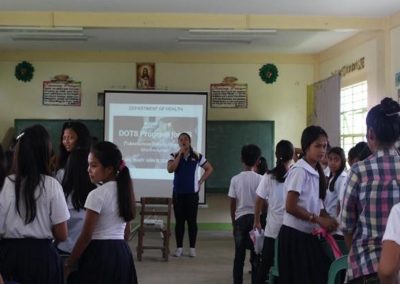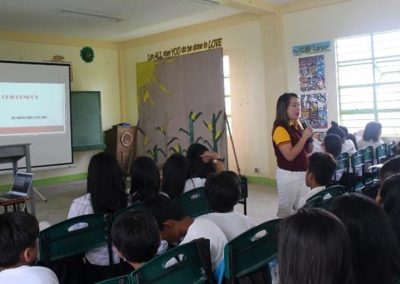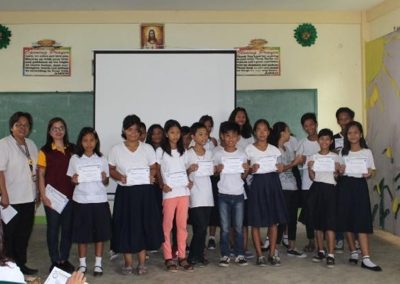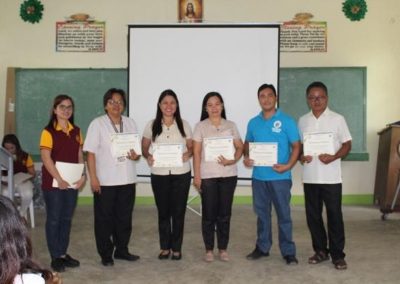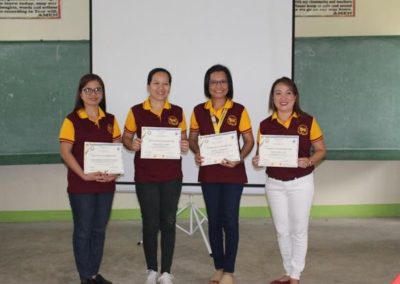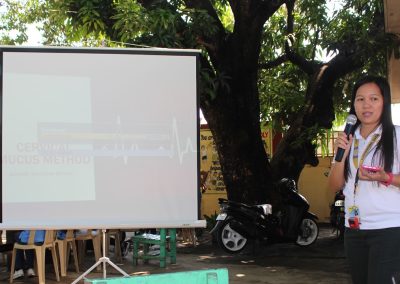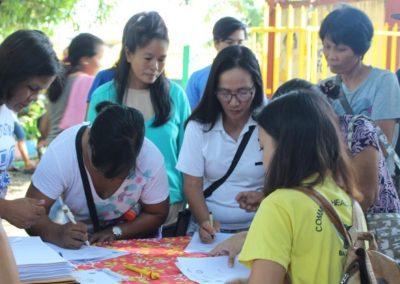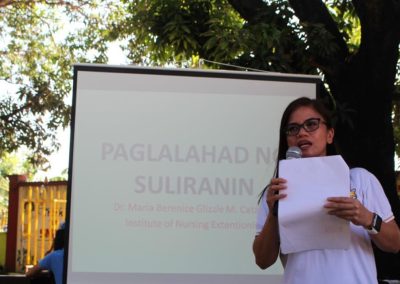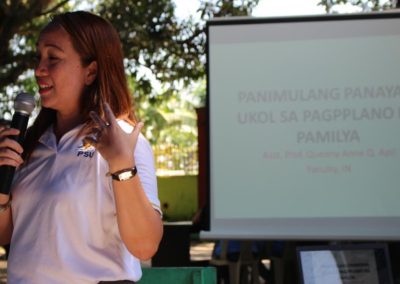
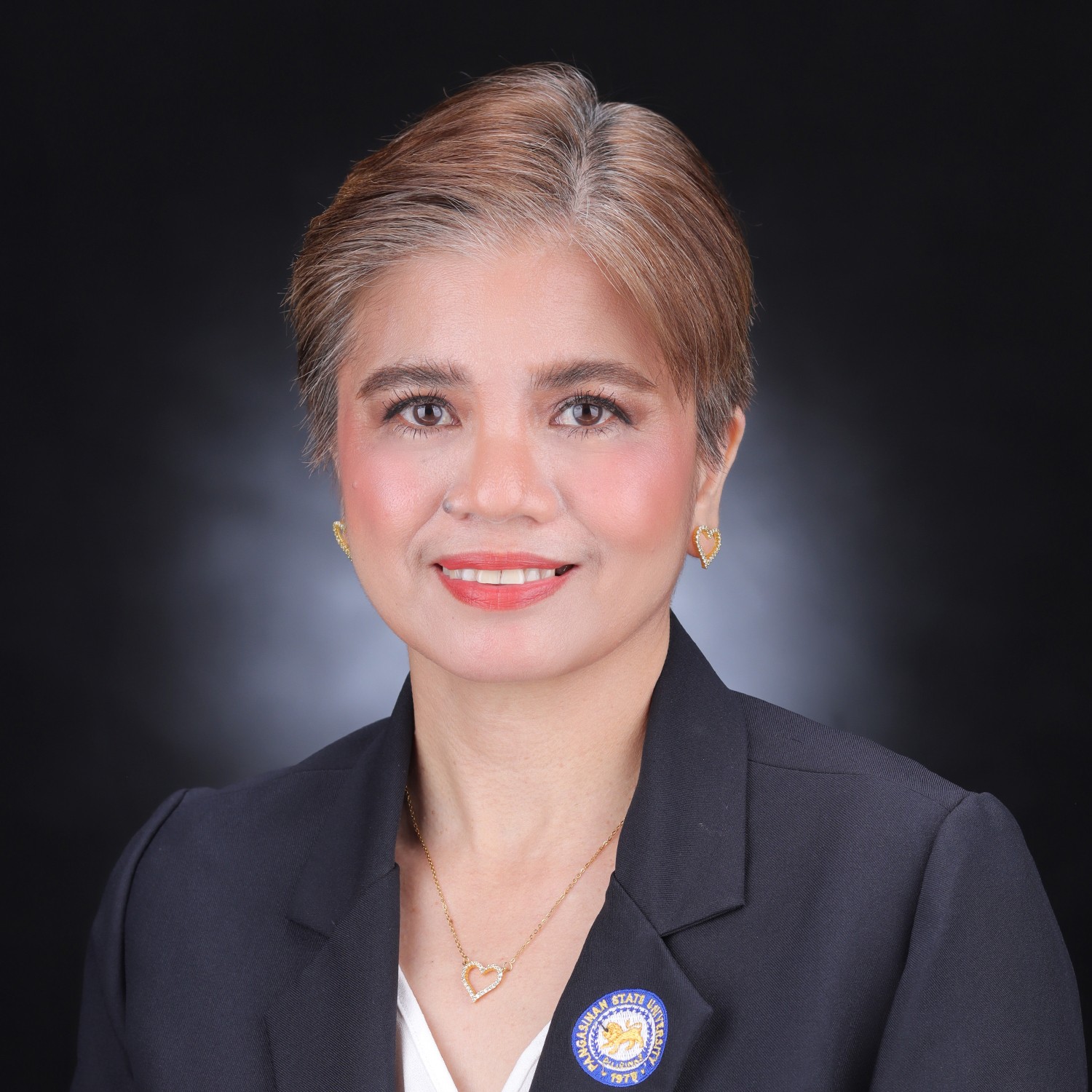
DR. MARIA BERENICE GLIZZLE M. CATABAY, PhD
DEAN
Welcome to Nursing Department
The Pangasinan State University – Bayambang Campus started to offer Bachelor of Science in Nursing program in June, 2004 through Board Resolution No. 21 s 2003. It aims to develop students to be responsible, caring, upright, holistic, innovative, and patriotic nurses.
After several evaluations of the Commission on Higher Education technical panel for nursing education and the Regional Quality Assurance Team, the Institute of Nursing was given its certificate for its continued operation on December 27, 2007.
The curriculum of the BS Nursing program was based on CHED Memorandum Order No. 15 s. 2017. It is composed of theory and the Related Learning Experience (RLE). The theory and RLE part of the curriculum are taught by qualified instructors. The nursing students are taught the nursing skills and procedures in the skills laboratory of the institute. Application of the skills and procedures learned in school are done in the community and in the different affiliating hospitals such as the Region 1 Medical Center, Pangasinan Provincial Hospital, Baguio General Hospital, the Bayambang District Hospital and others.
The Institute of Nursing is one with the University in providing quality education and achieving excellence. Thus, the Institute submits itself to accreditation or evaluation by the Accrediting Agency of Chartered Colleges and Universities in the Philippines (AACCUP, INC) to ensure that the education provided to students meets acceptable levels of quality. To date, the Institute has passed its Level III Reaccreditation and has secured its Certificate of Compliance from the Commission of Higher Education.
With the concerted efforts of the administration, faculty, students, parents, and other stakeholders, the Institute of Nursing will surely achieve its objectives and will continue to develop globally competitive nurses.
Soar high, PSU-Institute of Nursing!
The BSN is a four-year program consisting of general education and professional courses. Professional courses are threaded through from the first year thru the fourth year with emphasis on the nursing concepts with corresponding Related Learning Experiences (RLE). The BSN program provides an intensive nursing practicum that will refine further the nursing competencies to ensure achievement of the BSN program outcomes required of an entry level nurse.
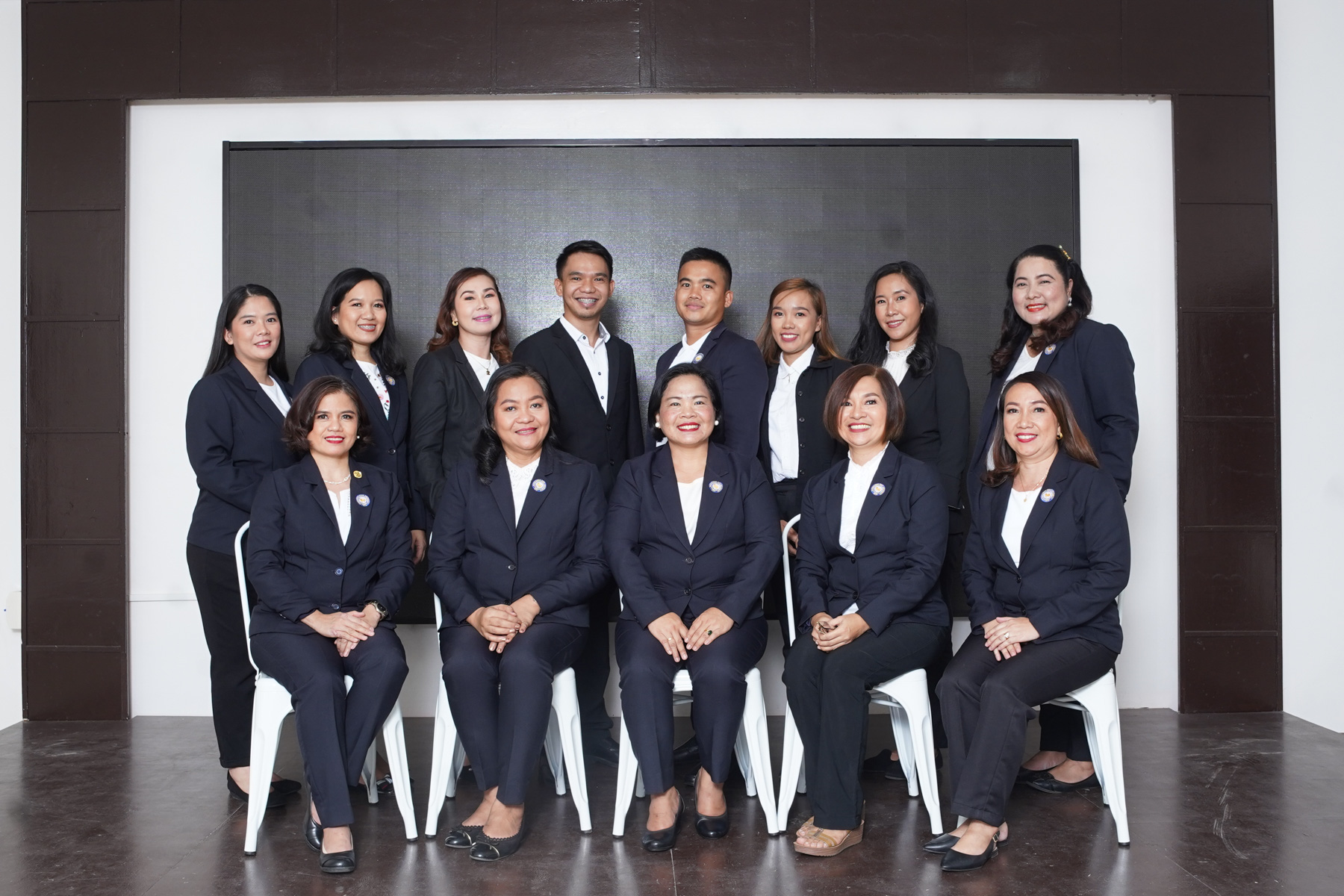
Directory
Cielo C. Fernandez, PHD
Dean
Queeny Anne Q. Apil, MAN
IN Faculty
Jumar B. Baratang, MAN
Faculty
Joan O. Cabanlong, MAN
Faculty
HAROLD P. CABANLONG, MAN
IN Academic Services Coordinator
Divina F. Cera, EdD
IN Faculty
MARIA ROXANNE T.BARROGO, MSN
IN Faculty
Sherlyn C. Platon, MAN
IN Faculty
Sean Q. Ramos, MAN
Faculty
Naomi A. Rebong, MAN
IN Faculty
WILBERT O.ROSARIO, MAN
IN Faculty
RAMIL S. CORPUZ, RN
IN Faculty
JOHN NICHOLSON L. DELOS REYES,RN
IN Faculty
Marissa C. Encina, RN
IN Faculty
Marvic Jim F. Encina, MAN
IN Faculty
Cielo C. Fernandez, PHD
IN Faculty
Maria Veronica T. Iglesias, RN
IN Faculty
Mary Ann B. Ignacio, MAN
IN Faculty
Melody Jane F. LAPEÑA, MAN
IN Faculty
Maria Rowena Via J. Lucena, MSN
IN Faculty
Darlene Grace C. Mangandi, RN
IN Faculty
Jennifer M. Mariano, MAN
IN Faculty
Cherry C. Mejia, RN
IN Faculty
Angelica Marie B. Odjinar, RN
IN Faculty
Daryl Mae V. Pallingayan, MSN
IN Faculty
Jorge O. Patricio, Jr., RN
IN Faculty
Sherlyn C. Platon, MAN
IN Faculty
Noel M. Quinto, RN
IN Faculty
Julie Ann M. Ramos, MSN
IN Faculty
Christina A. Rodriguez, RN
IN Faculty
Irene Joy A. Samson, RN
IN Faculty
EMPLOYMENT OPPORTUNITIES
The National Nursing Core Competencies Standards of 2012 includes the three (3) major roles of the professional nurse. As a nurse generalist, they can assume the roles on client care, leadership and management, and research. Beyond the beginning professional roles, the nurse can pursue any of the following options: (1) advanced practice nursing, (2) public health/community health nursing, (3) nursing education, and (4) leadership and governance.
Common to All Programs in All Types of School (CTS)
- Articulate and discuss the latest developments in the specific field of practice.
- Effectively communicate orally and in writing using both English and Filipino.
- Work effectively and independently in multi-disciplinary and multi-cultural teams.
- Act in recognition of professional, social, and ethical responsibility.
- Preserve and promote “Filipino historical, and cultural heritage.
Common to the Discipline (CD)
- Demonstrates clinical competence in specific profession.
- Observes ethical conduct in the practice of the profession.
- Pursues interprofessional education.
- Communicates effectively, orally and in writing.
- Engages in self-directed lifelong learning.
- Assumes leadership and management role.
- Promotes the use of health systems approach in the delivery of healthcare.
- Participates in the conduct of researches.
- Acts as a social advocate/mobilizer.
Specific to a Sub-Discipline and a Major (SM)
- Effectively communicate orally and in writing, using both Filipino and English languages.
- Work effectively and harmoniously with multi-disciplinary and multi-cultural teams.
- Apply knowledge of physical, social, natural and health sciences, and humanities in the practice of nursing.
- Provide safe, appropriate, and holistic care to individuals, families, population group and community utilizing nursing process.
- Apply guidelines and principles of evidence-based practice in the delivery of care.
- Practice nursing in accordance with existing laws, ethical and moral principles.
- Document accurately and comprehensively the health care rendered to the clients.
- Practice beginning management and leadership skills in the delivery of client care using a systems approach.
- Conduct research with a research expert.
- Engage in lifelong learning with a passion to keep abreast with national and global developments in general, and nursing and health developments in particular.
- Preserve, promote, and demonstrate Filipino cultural heritage, responsible citizenship, nationalism, and patriotism.
- Apply techno-intelligent care systems and processes in health care delivery.
- Adopt the nursing core values in the practice of the profession.
- Apply entrepreneurial skills in the delivery of nursing care.
Common to Graduates of a Horizontal Type of Institution as Defined in CMO 46, S 2012 (CHT)
Contribute to nation building by providing highly specialized educational experiences to train experts in the various technical and disciplinal area and by emphasizing the development of new knowledge and skills through research and development.
Performance Indicators
|
Program Outcomes |
Performance Indicator |
|
Articulate and discuss the latest developments in the specific field of practice. (CTS-1) Effectively communicate orally and in writing using both English and Filipino (CTS-2/CD-4/SM-1) Document accurately and comprehensively the health care rendered to the clients. (SM-7) |
Demonstrate understanding and appreciation of the contributions of other disciplines and professional fields to health care Ensure a working relationship with the client and/or support system based on trust, respect and shared decision making using appropriate communications/interpersonal techniques/strategies. Document client’s responses/nursing care services rendered and processes/outcomes of the nurse-client working relationship Ensure completeness, integrity, safety, accessibility, and security of information. Adhere to protocol and principles of confidentiality in safekeeping and releasing of records and other information |
|
Act in recognition of professional, social, and ethical responsibility. (CTS-4) Observes ethical conduct in the practice of the profession. (CD-2) Practice nursing in accordance with existing laws, legal, ethical, and moral principles. (SM-6) |
Adhere to ethico-legal considerations when providing safe, quality, and professional nursing care. Apply ethical reasoning and decision-making process to address situations of ethical distress and moral dilemma. Adhere to established norms of conduct based on the Philippine Nursing Law and other legal, regulatory, and institutional requirements relevant to safe nursing practice. Protect client rights based on “Patient’s Bill of Rights and Obligations” Implement strategies/policies related to informed consent as it applies in multiple context. |
|
Promotes the use of health systems approach in the delivery of healthcare. (CD-7) Apply guidelines and principles of evidence-based practice in the delivery of care. (SM-5) |
Provide appropriate evidence-based nursing care using a participatory approach based on:
|
|
Pursues interprofessional education. (CD-4) Engages in self-directed lifelong learning. CD-5) Engage in lifelong learning with a passion to keep abreast with national and global developments in general, and nursing and health developments in particular. (SM-10) |
Assume responsibility for lifelong learning, own personal development and maintenance of competence. Demonstrate continued competence and professional growth. Engage in advocacy activities to influence health and social care service, policies and access to services. Model professional behavior. Engage in advocacy activities to deal with health-related concerns and adopts policies that foster the growth and development of the nursing profession. |
|
Work effectively and independently in multi-disciplinary and multi-cultural teams (CTS-3/SM-2) |
Ensure intra-agency, inter-agency multi-disciplinary and sectoral collaboration in the delivery of health care. Implement strategies/approaches to enhance/support the capability of the client and care providers to participate in decision making by the inter professional team. Maintain a harmonious and collegial relationship among members of the health team for effective, efficient, and safe client care. Coordinate the tasks/functions of other nursing professional (midwife, BHW and utility worker). Collaborate with other members of the health team in the implementation of programs and services. Apply principles of partnership and collaboration to improve delivery of health services. Collaborate with GOs, NGO’s and other social civic agencies to improve health care services, support environment protection policies and strategies, and safety and security mechanisms in the community. Participate as a member of a quality team in implementing the appropriate quality improvement, process on identified improvement opportunities. |
|
Act in recognition of professional, social, and ethical responsibility. (CTS-4) Apply knowledge of physical, social, natural and health sciences, and humanities in the practice of nursing. (SM-3) |
Integrate relevant principles of social, physical, natural and health sciences, and humanities in a given health and nursing situation. Apply appropriate nursing concepts and actions holistically and comprehensively. |
|
Preserve and promote “Filipino historical, and cultural heritage. (CTS-5/SM-11) |
Exemplify love for the country in service of the Filipinos. Customize nursing interventions based on Philippine Culture and values |
|
Demonstrates clinical competence in specific profession (CD-1) Provide safe, appropriate, and holistic care to individuals, families, population group and community utilizing nursing process. (SM-4) |
Assess with the client (individual, family, population groups and/or community), one’s health status/competence. Formulate with the client a plan of care to address the health conditions, needs, problems and issues based on priorities. Implement safe and quality interventions with the client to address the health needs, problems and issues. Provide health education using selected planning models to targeted clientele (individuals, family, populations group or community). Evaluate with the client the health status/competence and/or expected outcomes of nurse-client working relationship. Institute appropriate corrective actions to prevent or minimize harm arising from adverse effects. |
|
Assumes leadership and management role. (CD-6) Acts as a social advocate/mobilizer. (CD-9) Practice beginning management and leadership skills in the delivery of client care using a systems approach. (SM-8) |
Participate in the development and improvement of policies and standards regarding safe nursing practice and relevant to human resource management. Manage resources (human, physical, financial time) efficiently and effectively. Apply management and leadership principles in providing directions to manage a community/village-based program. Use appropriate strategies/approaches to plan community health programs and nursing service. Supervise the implementation of the nursing component of the health services/programs. Ensure that all nursing personnel adhere to safety, bioethical principles and evidenced-based nursing practice. Evaluate specific components of health programs and nursing services based on parameters/criteria. Maintain a positive practice environment. Participate in the planning and implementation of staff development activities, to enhance performance of nursing staff/support staff. Evaluate performance of nursing support staff using a standard evaluation tool. |
|
Participates in the conduct of researches. (CD-8/SM-9) |
Participate in preparing a research proposal complying with ethical principles in nursing research. Conduct a research study as a member of a research team. Determine if the research problems/questions, learning outcomes, and/or hypotheses are clearly and logically linked to the research process, concepts and relationships, and propositions generated from the study framework. Analyze if the conceptual framework, the summary of review of literature, research design and data analysis procedure are logically linked with the research purpose, problems/questions and hypotheses. Establish if the interpretation, implications and recommendations are consistent with the results considering the limitations of the study. Analyze the research study/report for adherence to standards of writing mechanics, ethical principles and guidelines in all phases of the research study. Present the research study conducted in partnership with the research team. |
|
Apply techno-intelligent care systems and processes in health care delivery. (SM-12) Apply entrepreneurial skills in the delivery of nursing care (SM 14) |
Use appropriate technology to perform safe and efficient nursing activities. Implement system of informatics to support the delivery of health care. Identify opportunities for entrepreneurial nursing practice. Apply strategic interventions to address health related concerns of individuals, families, communities and population groups to any health care setting. |
|
Adopt the nursing core values in the practice of the profession. (SM-13) |
Demonstrate caring as the core of nursing, love of God, love of country and love of people. Manifest professionalism, integrity and excellence. Project the positive professional image of a Filipino nurse. |
|
Contribute to nation building by providing highly specialized educational experiences to train experts in the various technical and disciplinal area and by emphasizing the development of new knowledge and skills through research and development. (CHT) |
Manifest high level of professionalism across all culture in various health care context responsive to the demands of Industrial Revolution 5.0 |
The BSN program aims to develop a professional nurse who can assume entry level positions in health facilities or community settings. The professional nurse is capable of providing safe, humane, quality and holistic care to individuals in varying age, gender and health-illness status; healthy or at-risk families; population groups; and community; singly or in collaboration with other health care providers to promote health, prevent illness, restore health, alleviate suffering and provide end of life care.
Department Activities
Consultation With Parents, Faculty and Students on Limited Face to Face RLE Classes
Before the implementation of the limited face-to-face RLE classes, a consultation meeting with the faculty, parents, and students of the Institute of Nursing was conducted. This was done to elicit the idea and answer queries of the parents and students on limited face-to-face classes. The consultation meeting was presided by the Dean of the IN, Dr. Cielo C. Fernandez together with all the faculty of the institute. The Campus Executive Director, Dr. Liza Quimson also attended the meeting and answered some of the questions raised. At the end of the meeting, the faculty, parents, and students had unanimously agreed to implement the limited face-to-face RLE classes for all year levels of the BS Nursing program.
Basic Life Support and First Aid Training (2018)
The Basic Life Support (BLS) and First Aid Training is a yearly activity for the 4th Year Nursing students as a supplement to the skills they have learned in their course NCM 121 – Disaster Nursing. This is in partnership with the Philippine Red Cross Pangasinan Chapter.
Basic Life Support and First Aid Training (2019)
The Basic Life Support (BLS) and First Aid Training is a yearly activity for the 4th Year Nursing students as a supplement to the skills they have learned in their course NCM 121 – Disaster Nursing. This is in partnership with the Philippine Red Cross Pangasinan Chapter.
Extension Activities
ISULONG KALUSUGAN 2021
Isulong Kalusugan 2021 is an extension activity of the Institute of Nursing with the objective of sharing additional knowledge on prevention of spread of COVID-19 disease to mothers of Brgy. Bani and distribution of IEC materials about COVID-19 and hygiene kits to selected day care pupils. This was held at the Brgy. Bani Child Development Center on June 17, 2021. The activity was graced by the Campus Executive Director, Dr. Liza L. Quimson, the Campus Extension Coordinator, Dr. Gudelia M. Samson, and some officials of Brgy. Bani.
KALINGANG PSU OUTREACH ACTIVITY
As a manifestation of one of the values of a PSUnian, that is Social Responsibility, the Institute of Nursing and the Extension Unit of the campus instigated the Kalingang PSU Outreach Activity on April 23, 2020. Faculty from the different departments of PSU Bayambang Campus gave their contributions to buy rice, noodles, canned goods, snack packs, and other items to share to the PSU TODA members, the frontliners, and other chosen recipients from the nearby barangays. The IN extensionist, Dean of IN, Campus Extension Coordinator, Alumni Coordinator, Campus Librarian, and the faculty from the FIC were among those who prepared and distributed the food packs.
SEMINAR ON CUMMUNICABLE DISEASE: COVID-19
As a manifestation of one of the values of a PSUnian, that is Social Responsibility, the Institute of Nursing and the Extension Unit of the campus instigated the Kalingang PSU Outreach Activity on April 23, 2020. Faculty from the different departments of PSU Bayambang Campus gave their contributions to buy rice, noodles, canned goods, snack packs, and other items to share to the PSU TODA members, the frontliners, and other chosen recipients from the nearby barangays. The IN extensionist, Dean of IN, Campus Extension Coordinator, Alumni Coordinator, Campus Librarian, and the faculty from the FIC were among those who prepared and distributed the food packs.
INFORMATION DISSEMINATION
In response to the wide spreading disease known as COVID-19, which is also considered as a new communicable disease during the first months of 2020, the Institute of Nursing faculty and students initiated an information dissemination on COVID-19. Tarpaulins regarding the new disease particularly on mode of transmission and prevention were posted on conspicuous places and flyers and brochures containing the same information about COVID-19 were distributed to community folks, teachers, and students.
SEMINAR IN COMMUNICABLE DISEASES
To raise the awareness on communicable diseases among high school students and faculty of Tanolong National High School, the Institute of Nursing faculty with the help of some students conducted a Seminar on Communicable Diseases last August 29, 2019. Among the topics discussed were hepatitis, pulmonary tuberculosis, measles, HIV/AIDS, and chicken pox.
SEMINAR IN FAMILY PLANNING
Faculty and students of the PSU Institute of Nursing conducted a Seminar on Family Planning at Tanolong Elementary School on October, 2018, with mothers and a few fathers who attended the activity. Topics discussed were the different methods of family planning. This is in response to the needs assessment conducted by the IN where one of the problems that was identified by the respondents is the lack of awareness of the different family planning methods. The lectures were given by the faculty of the IN.
